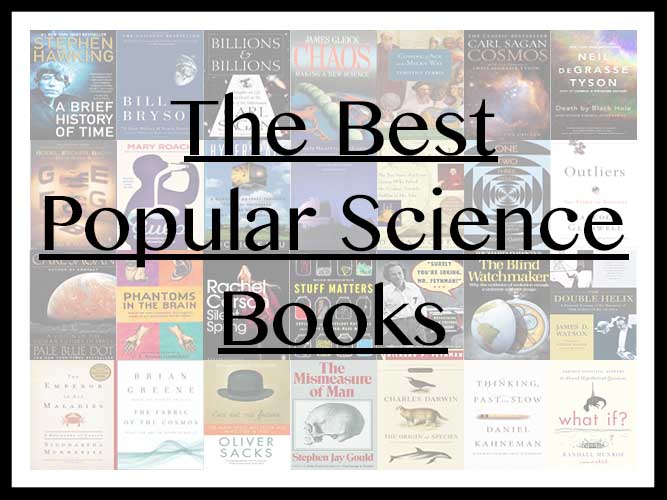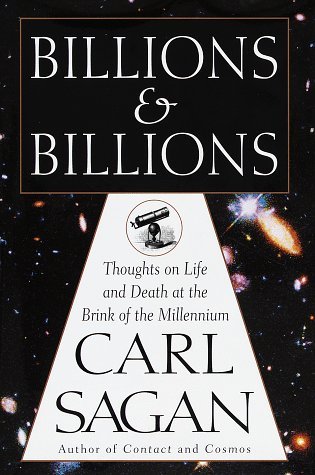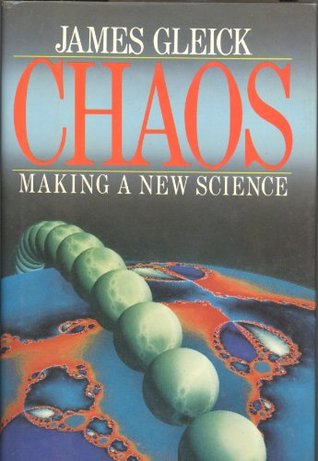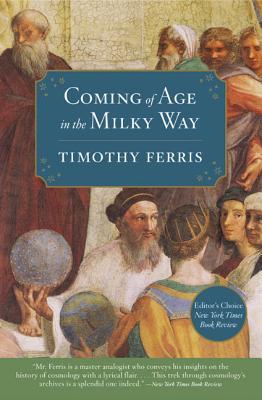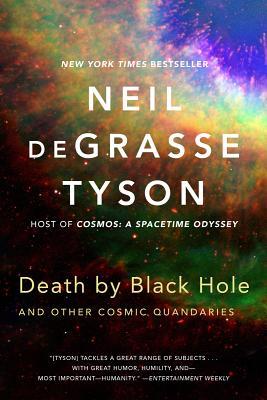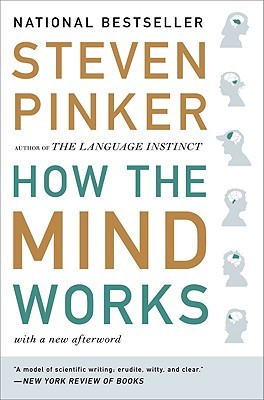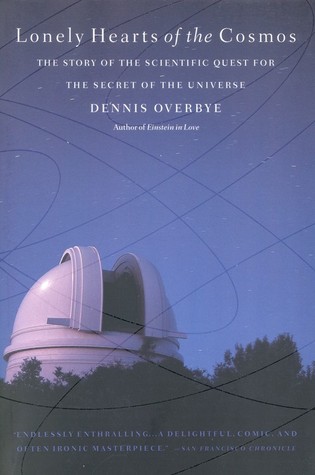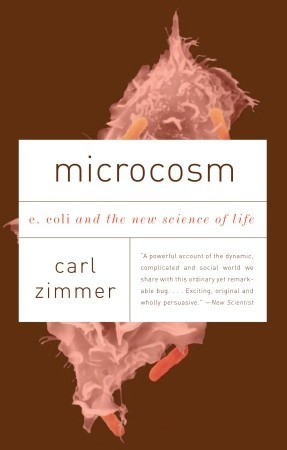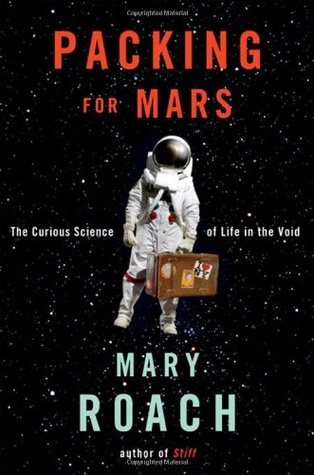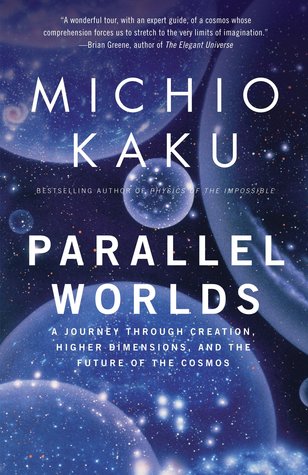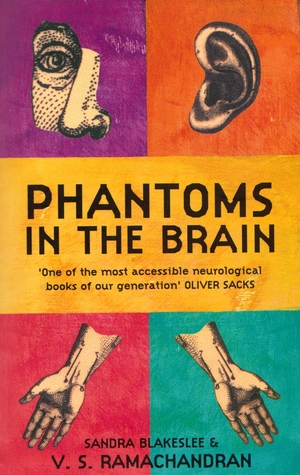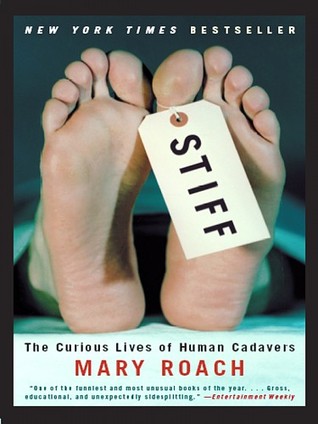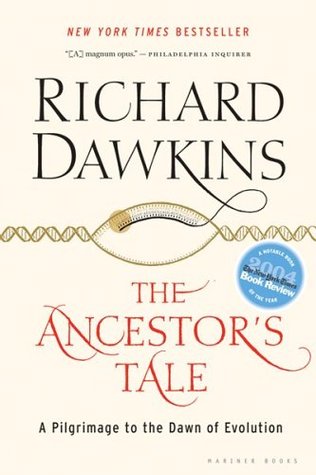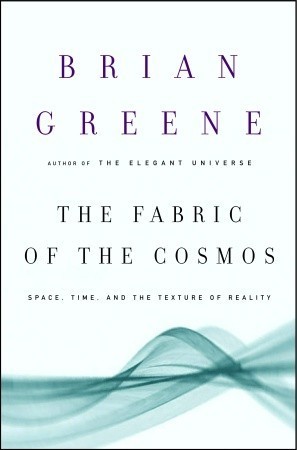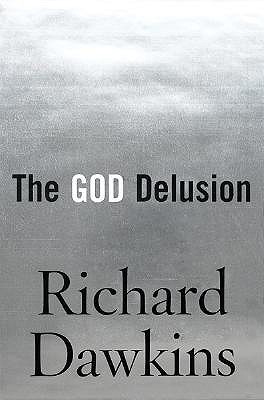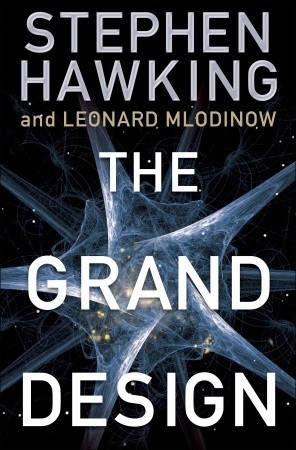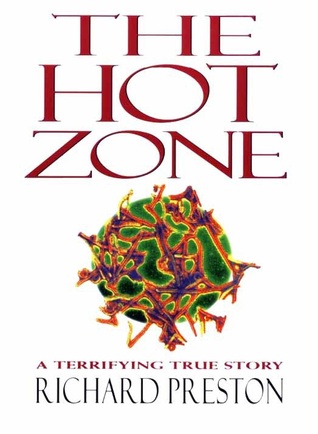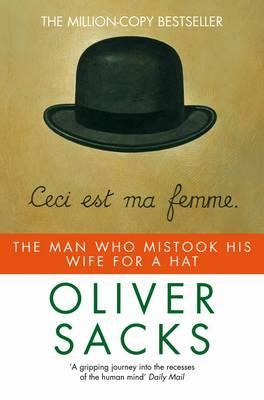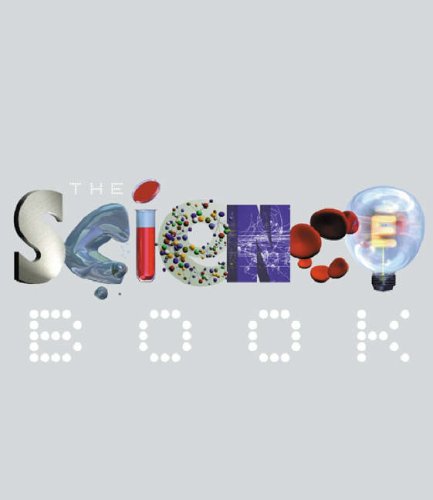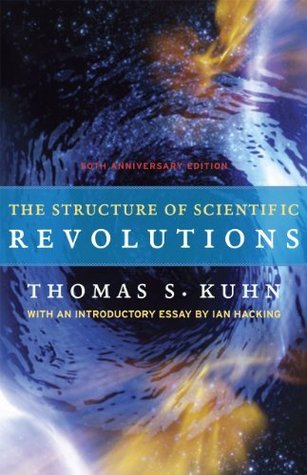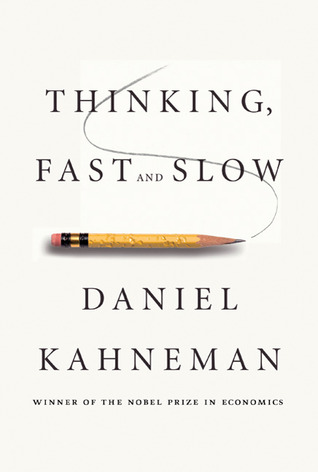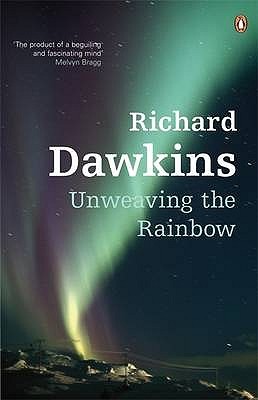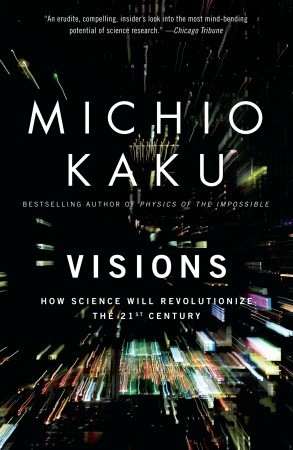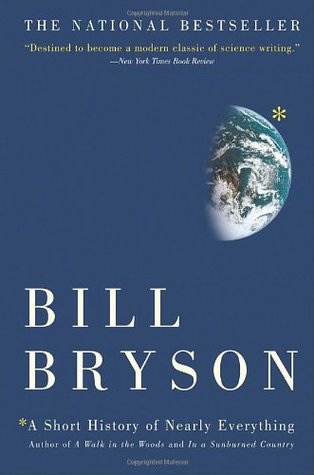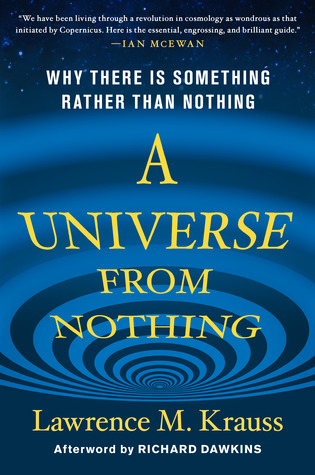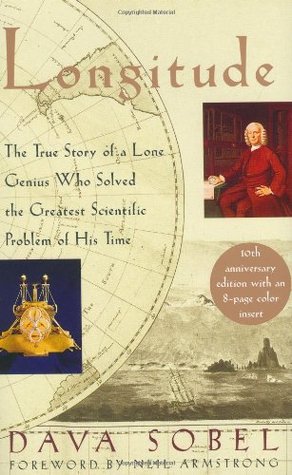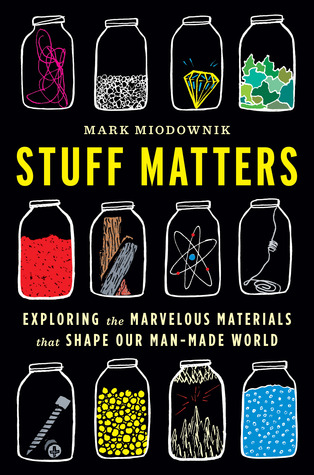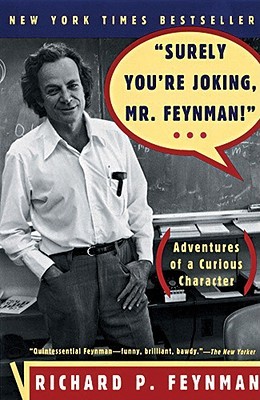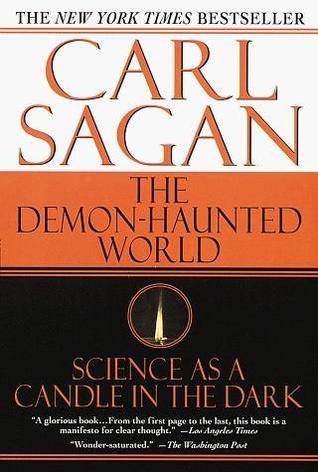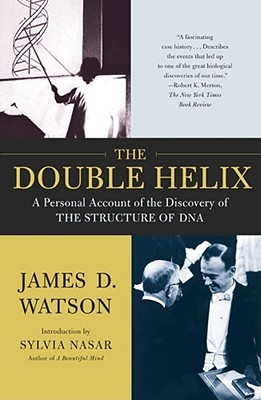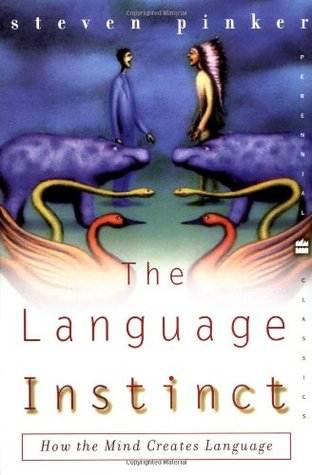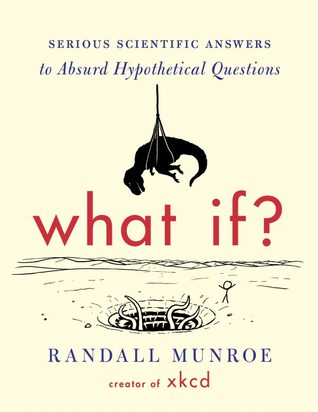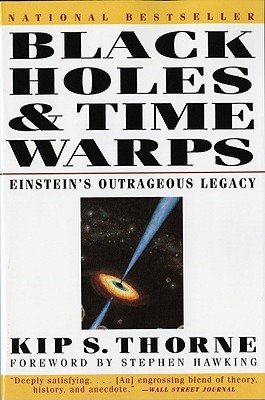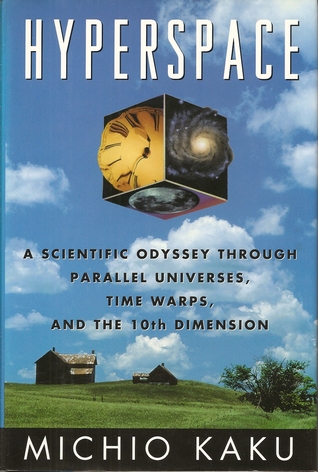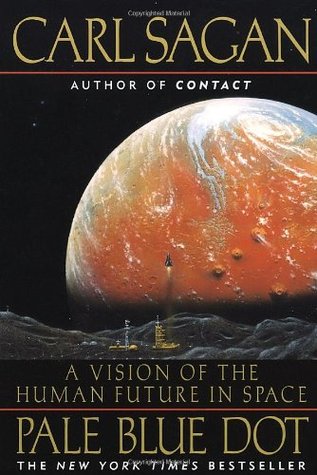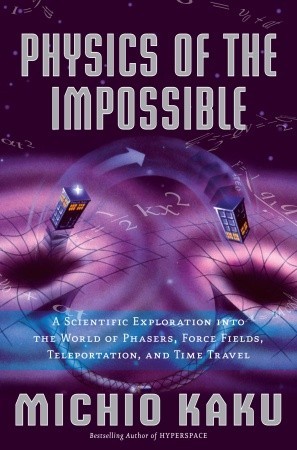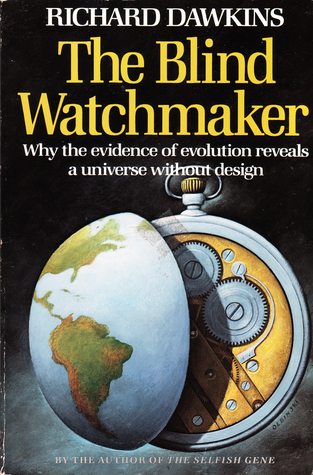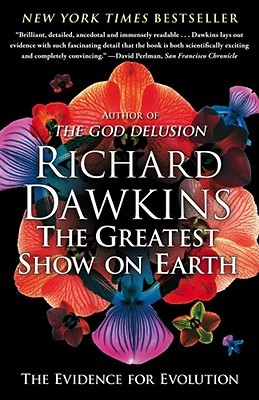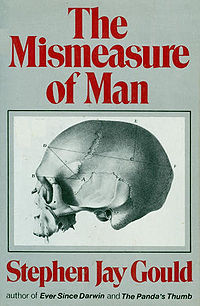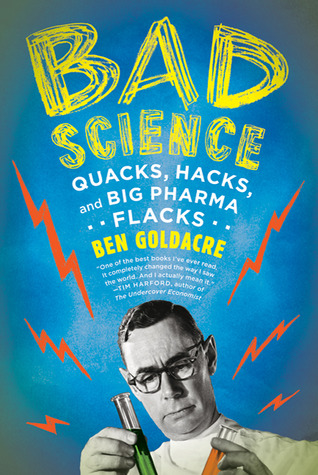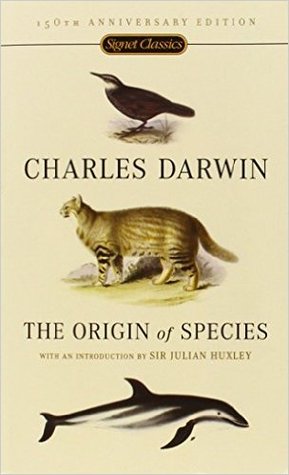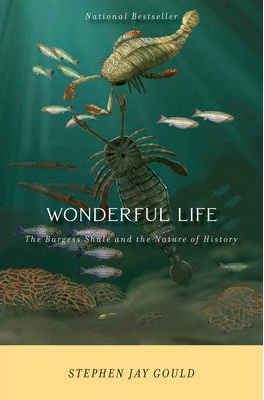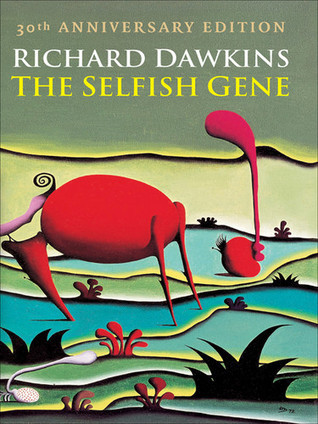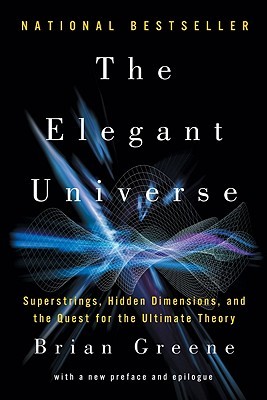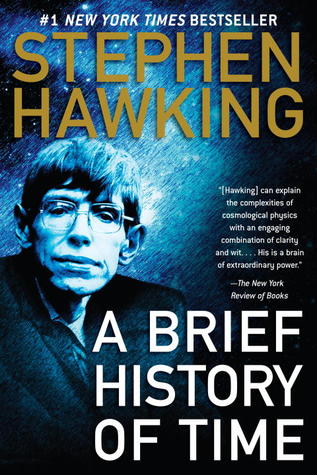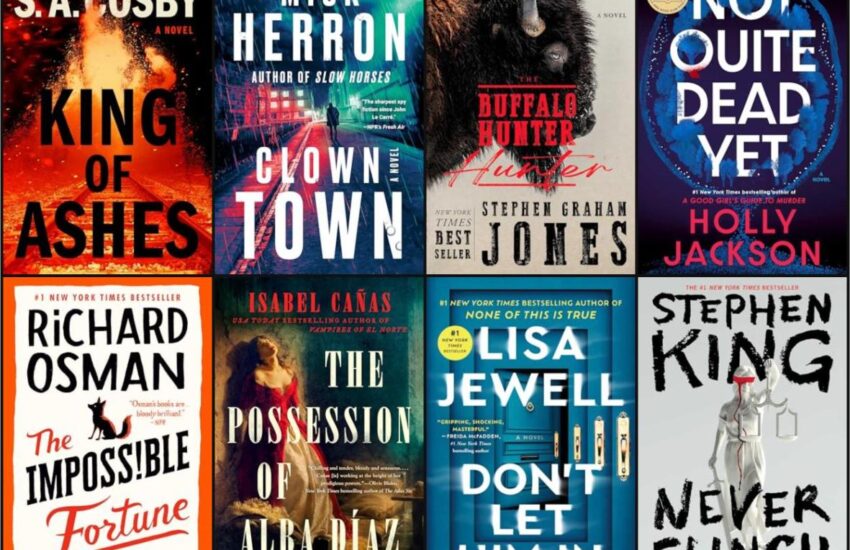The Best Popular Science Books Of All-Time
“What are the best Popular Science Books of All-Time?” We looked at 763 of the top Popular Science books, aggregating and ranking them so we could answer that very question!
In our longest, most extensive list to date, we looked at 22 different “Best Popular Science Book” listicles and aggregated them together so we could see what the top books really are. Altogether, there were over 750 unique titles, 128 of which appeared on multiple lists. We took the top 54 books, all appearing on 3 or more lists, and ranked them below (depending on how many articles they appeared on), including images, descriptions, and links to purchase. The remaining 700+ titles, as well as the articles we used, are below the top books in alphabetical order.
The books cover a variety of different scientific subjects over a long period of time, but they do seem to lean heavier on older titles that have had time to sink in more and influence their areas of expertise for several years. The overall list (especially the top 54) are also very dude-heavy, with only a few female authors sneaking in. It would be interesting to check back in on this in a couple years to see if newer and more diverse titles start to break through into top Popular Science book lists.
If you do want to see some of the best Science books from the last few years, take a look at our year-end Top Science book lists from 2015 and 2016!
Happy Scrolling!
Top 54 Popular Science Books
54 .) Billions & Billions: Thoughts on Life and Death at the Brink of the Millennium by Carl Sagan
Lists It Appears On:
- Dennis Meredith
- Goodreads
- Writing About Science
In the final book of his astonishing career, Carl Sagan brilliantly examines the burning questions of our lives, our world, and the universe around us. These luminous, entertaining essays travel both the vastness of the cosmos and the intimacy of the human mind, posing such fascinating questions as how did the universe originate and how will it end, and how can we meld science and compassion to meet the challenges of the coming century? Here, too, is a rare, private glimpse of Sagan’s thoughts about love, death, and God as he struggled with fatal disease. Ever forward-looking and vibrant with the sparkle of his unquenchable curiosity, Billions & Billions is a testament to one of the great scientific minds of our day.
53 .) Chaos by James Gleick
Lists It Appears On:
- List Muse
- Writing About Science
- Wikipedia
A work of popular science in the tradition of Stephen Hawking and Carl Sagan, this 20th-anniversary edition of James Gleick’s groundbreaking bestseller Chaos introduces a whole new readership to chaos theory, one of the most significant waves of scientific knowledge in our time. From Edward Lorenz’s discovery of the Butterfly Effect, to Mitchell Feigenbaum’s calculation of a universal constant, to Benoit Mandelbrot’s concept of fractals, which created a new geometry of nature, Gleick’s engaging narrative focuses on the key figures whose genius converged to chart an innovative direction for science. In Chaos, Gleick makes the story of chaos theory not only fascinating but also accessible to beginners, and opens our eyes to a surprising new view of the universe.
52 .) Coming of Age in the Milky Way by Timothy Ferris
Lists It Appears On:
- Dennis Meredith
- List Muse
- Writing About Science
From the second-century celestial models of Ptolemy to modern-day research institutes and quantum theory, this classic book offers a breathtaking tour of astronomy and the brilliant, eccentric personalities who have shaped it. From the first time mankind had an inkling of the vast space that surrounds us, those who study the universe have had to struggle against political and religious preconceptions. They have included some of the most charismatic, courageous, and idiosyncratic thinkers of all time. In Coming of Age in the Milky Way, Timothy Ferris uses his unique blend of rigorous research and captivating narrative skill to draw us into the lives and minds of these extraordinary figures, creating a landmark work of scientific history.
51 .) Death by Black Hole: and Other Cosmic Quandries by Neil deGrasse Tyson
Lists It Appears On:
- Goodreads
- Listverse
- Dennis Meredith
Loyal readers of the monthly “Universe” essays in Natural History magazine have long recognized Neil deGrasse Tyson’s talent for guiding them through the mysteries of the cosmos with clarity and enthusiasm. Bringing together more than forty of Tyson’s favorite essays, ?Death by Black Hole? explores a myriad of cosmic topics, from what it would be like to be inside a black hole to the movie industry’s feeble efforts to get its night skies right. One of America’s best-known astrophysicists, Tyson is a natural teacher who simplifies the complexities of astrophysics while sharing his infectious fascination for our universe.
50 .) Gulp: Adventures on the Alimentary Canal by Mary Roach
Lists It Appears On:
- Pimedia Online
- Wikipedia
- Goodreads
“America’s funniest science writer” (Washington Post) takes us down the hatch on an unforgettable tour. The alimentary canal is classic Mary Roach terrain: the questions explored in Gulp are as taboo, in their way, as the cadavers in Stiff and every bit as surreal as the universe of zero gravity explored in Packing for Mars. Why is crunchy food so appealing? Why is it so hard to find words for flavors and smells? Why doesn’t the stomach digest itself? How much can you eat before your stomach bursts? Can constipation kill you? Did it kill Elvis? In Gulp we meet scientists who tackle the questions no one else thinks of―or has the courage to ask. We go on location to a pet-food taste-test lab, a fecal transplant, and into a live stomach to observe the fate of a meal. With Roach at our side, we travel the world, meeting murderers and mad scientists, Eskimos and exorcists (who have occasionally administered holy water rectally), rabbis and terrorists―who, it turns out, for practical reasons do not conceal bombs in their digestive tracts.
49 .) How the Mind Works by Steven Pinker
Lists It Appears On:
- Dennis Meredith
- Writing About Science
- Social Bat
In this Pulitzer Prize finalist and national bestseller, one of the world’s leading cognitive scientists tackles the workings of the human mind. What makes us rational―and why are we so often irrational? How do we see in three dimensions? What makes us happy, afraid, angry, disgusted, or sexually aroused? Why do we fall in love? And how do we grapple with the imponderables of morality, religion, and consciousness? ?How the Mind Works? synthesizes the most satisfying explanations of our mental life from cognitive science, evolutionary biology, and other fields to explain what the mind is, how it evolved, and how it allows us to see, think, feel, laugh, interact, enjoy the arts, and contemplate the mysteries of life.
48 .) Lonely Hearts of the Cosmos by Dennis Overbye
Lists It Appears On:
- OEDB
- Preposterous Universe
- Writing About Science
In southern California, nearly a half century ago, a small band of researchers — equipped with a new 200-inch telescope and a faith born of scientific optimism — embarked on the greatest intellectual adventure in the history of humankind: the search for the origin and fate of the universe. Their quest would eventually engulf all of physics and astronomy, leading not only to the discovery of quasars, black holes, and shadow matter but also to fame, controversy, and Nobel Prizes. Lonely Hearts of the Cosmos tells the story of the men and women who have taken eternity on their shoulders and stormed nature in search of answers to the deepest questions we know to ask.
47 .) Microcosm: E. coli and the New Science of Life by Carl Zimmer
Lists It Appears On:
- Dynamic Ecology
- List Muse
- Wikipedia
In this fascinating and utterly engaging book, Carl Zimmer traces E. coli’s pivotal role in the history of biology, from the discovery of DNA to the latest advances in biotechnology. He reveals the many surprising and alarming parallels between E. coli’s life and our own. And he describes how E. coli changes in real time, revealing billions of years of history encoded within its genome. E. coli is also the most engineered species on Earth, and as scientists retool this microbe to produce life-saving drugs and clean fuel, they are discovering just how far the definition of life can be stretched.
46 .) Outliers: The Story of Success, by Malcolm Gladwell
Lists It Appears On:
- OEDB
- Wikipedia
- Psychology Today
“In this stunning new book, Malcolm Gladwell takes us on an intellectual journey through the world of “”outliers””–the best and the brightest, the most famous and the most successful. He asks the question: what makes high-achievers different?
His answer is that we pay too much attention to what successful people are like, and too little attention to where they are from: that is, their culture, their family, their generation, and the idiosyncratic experiences of their upbringing. Along the way he explains the secrets of software billionaires, what it takes to be a great soccer player, why Asians are good at math, and what made the Beatles the greatest rock band. “
45 .) Packing for Mars: The Curious Science of Life in the Void by Mary Roach
Lists It Appears On:
- Wikipedia
- Geek Wrapped
- Goodreads
Space is a world devoid of the things we need to live and thrive: air, gravity, hot showers, fresh produce, privacy, beer. Space exploration is in some ways an exploration of what it means to be human. How much can a person give up? How much weirdness can they take? What happens to you when you can’t walk for a year? have sex? smell flowers? What happens if you vomit in your helmet during a space walk? Is it possible for the human body to survive a bailout at 17,000 miles per hour? To answer these questions, space agencies set up all manner of quizzical and startlingly bizarre space simulations. As Mary Roach discovers, it’s possible to preview space without ever leaving Earth. From the space shuttle training toilet to a crash test of NASA’s new space capsule (cadaver filling in for astronaut), Roach takes us on a surreally entertaining trip into the science of life in space and space on Earth.
44 .) Parallel Worlds: A Journey Through Creation, Higher Dimensions, and the Future of the Cosmos by Michio Kaku
Lists It Appears On:
- Wikipedia
- Dennis Meredith
- Goodreads
“In this thrilling journey into the mysteries of our cosmos, bestselling author Michio Kaku takes us on a dizzying ride to explore black holes and time machines, multidimensional space and, most tantalizing of all, the possibility that parallel universes may lay alongside our own.
Kaku skillfully guides us through the latest innovations in string theory and its latest iteration, M-theory, which posits that our universe may be just one in an endless multiverse, a singular bubble floating in a sea of infinite bubble universes. If M-theory is proven correct, we may perhaps finally find answer to the question, “What happened before the big bang?” This is an exciting and unforgettable introduction into the new cutting-edge theories of physics and cosmology from one of the pre-eminent voices in the field.”
43 .) Phantoms in the Brain: Probing the Mysteries of the Human Mind by Sandra Blakeslee
Lists It Appears On:
- Simon Singh
- Wikipedia
- Dennis Meredith
Neuroscientist V.S. Ramachandran is internationally renowned for uncovering answers to the deep and quirky questions of human nature that few scientists have dared to address. His bold insights about the brain are matched only by the stunning simplicity of his experiments — using such low-tech tools as cotton swabs, glasses of water and dime-store mirrors. In Phantoms in the Brain, Dr. Ramachandran recounts how his work with patients who have bizarre neurological disorders has shed new light on the deep architecture of the brain, and what these findings tell us about who we are, how we construct our body image, why we laugh or become depressed, why we may believe in God, how we make decisions, deceive ourselves and dream, perhaps even why we’re so clever at philosophy, music and art.
42 .) Six Easy Pieces by Richard Feynman
Lists It Appears On:
- Johnny Lists
- OEDB
- Simon Singh
“It was Richard Feynman’s outrageous and scintillating method of teaching that earned him legendary status among students and professors of physics. From 1961 to 1963, Feynman delivered a series of lectures at the California Institute of Technology that revolutionized the teaching of physics around the world. Six Easy Pieces, taken from these famous Lectures on Physics, represent the most accessible material from the series.
In these classic lessons, Feynman introduces the general reader to the following topics: atoms, basic physics, energy, gravitation, quantum mechanics, and the relationship of physics to other topics. With his dazzling and inimitable wit, Feynman presents each discussion with a minimum of jargon. Filled with wonderful examples and clever illustrations, Six Easy Pieces is the ideal introduction to the fundamentals of physics by one of the most admired and accessible physicists of modern times.”
41 .) Stiff: The Curious Lives of Human Cadavers by Mary Roach
Lists It Appears On:
- Geek Wrapped
- Goodreads
- Stat News
Stiff is an oddly compelling, often hilarious exploration of the strange lives of our bodies postmortem. For two thousand years, cadavers―some willingly, some unwittingly―have been involved in science’s boldest strides and weirdest undertakings. In this fascinating account, Mary Roach visits the good deeds of cadavers over the centuries and tells the engrossing story of our bodies when we are no longer with them.
40 .) The Ancestor’s Tale: A Pilgrimage to the Dawn of Evolution by Richard Dawkins
Lists It Appears On:
- Dennis Meredith
- Goodreads
- Social Bat
“The renowned biologist and thinker Richard Dawkins presents his most expansive work yet: a comprehensive look at evolution, ranging from the latest developments in the field to his own provocative views. Loosely based on the form of Chaucer’s Canterbury Tales, Dawkins’s Tale takes us modern humans back through four billion years of life on our planet. As the pilgrimage progresses, we join with other organisms at the forty “”rendezvous points”” where we find a common ancestor. The band of pilgrims swells into a vast crowd as we join first with other primates, then with other mammals, and so on back to the first primordial organism.
Dawkins’s brilliant, inventive approach allows us to view the connections between ourselves and all other life in a bracingly novel way. It also lets him shed bright new light on the most compelling aspects of evolutionary history and theory: sexual selection, speciation, convergent evolution, extinction, genetics, plate tectonics, geographical dispersal, and more. The Ancestor’s Tale is at once a far-reaching survey of the latest, best thinking on biology and a fascinating history of life on Earth. Here Dawkins shows us how remarkable we are, how astonishing our history, and how intimate our relationship with the rest of the living world.”
39 .) The Emperor of All Maladies: A Biography of Cancer by Siddhartha Mukherjee
Lists It Appears On:
- List Muse
- Goodreads
- Stat News
“Winner of the Pulitzer Prize, and now a documentary from Ken Burns on PBS, The Emperor of All Maladies is a magnificent, profoundly humane “biography” of cancer—from its first documented appearances thousands of years ago through the epic battles in the twentieth century to cure, control, and conquer it to a radical new understanding of its essence.
Physician, researcher, and award-winning science writer, Siddhartha Mukherjee examines cancer with a cellular biologist’s precision, a historian’s perspective, and a biographer’s passion. The result is an astonishingly lucid and eloquent chronicle of a disease humans have lived with—and perished from—for more than five thousand years.
The story of cancer is a story of human ingenuity, resilience, and perseverance, but also of hubris, paternalism, and misperception. Mukherjee recounts centuries of discoveries, setbacks, victories, and deaths, told through the eyes of his predecessors and peers, training their wits against an infinitely resourceful adversary that, just three decades ago, was thought to be easily vanquished in an all-out “war against cancer.” The book reads like a literary thriller with cancer as the protagonist. “
38 .) The Fabric of the Cosmos: Space, Time, and the Texture of Reality by Brian Greene
Lists It Appears On:
- Geek Wrapped
- Dennis Meredith
- Goodreads
Space and time form the very fabric of the cosmos. Yet they remain among the most mysterious of concepts. Is space an entity? Why does time have a direction? Could the universe exist without space and time? Can we travel to the past? Greene has set himself a daunting task: to explain non-intuitive, mathematical concepts like String Theory, the Heisenberg Uncertainty Principle, and Inflationary Cosmology with analogies drawn from common experience. From Newton’s unchanging realm in which space and time are absolute, to Einstein’s fluid conception of spacetime, to quantum mechanics’ entangled arena where vastly distant objects can instantaneously coordinate their behavior, Greene takes us all, regardless of our scientific backgrounds, on an irresistible and revelatory journey to the new layers of reality that modern physics has discovered lying just beneath the surface of our everyday world.
37 .) The God Delusion by Richard Dawkins
Lists It Appears On:
- Dennis Meredith
- Geek Wrapped
- Goodreads
With rigor and wit, Dawkins examines God in all his forms, from the sex-obsessed tyrant of the Old Testament to the more benign (but still illogical) Celestial Watchmaker favored by some Enlightenment thinkers. He eviscerates the major arguments for religion and demonstrates the supreme improbability of a supreme being. He shows how religion fuels war, foments bigotry, and abuses children, buttressing his points with historical and contemporary evidence. The God Delusion makes a compelling case that belief in God is not just wrong but potentially deadly. It also offers exhilarating insight into the advantages of atheism to the individual and society, not the least of which is a clearer, truer appreciation of the universe’s wonders than any faith could ever muster.
36 .) The Grand Design by Stephen Hawking
Lists It Appears On:
- Wikipedia
- Geek Wrapped
- Goodreads
“When and how did the universe begin? Why are we here? What is the nature of reality? Is the apparent “grand design” of our universe evidence of a benevolent creator who set things in motion—or does science offer another explanation? In this startling and lavishly illustrated book, Stephen Hawking and Leonard Mlodinow present the most recent scientific thinking about these and other abiding mysteries of the universe, in nontechnical language marked by brilliance and simplicity.
According to quantum theory, the cosmos does not have just a single existence or history. The authors explain that we ourselves are the product of quantum fluctuations in the early universe, and show how quantum theory predicts the “multiverse”—the idea that ours is just one of many universes that appeared spontaneously out of nothing, each with different laws of nature. They conclude with a riveting assessment of M-theory, an explanation of the laws governing our universe that is currently the only viable candidate for a “theory of everything”: the unified theory that Einstein was looking for, which, if confirmed, would represent the ultimate triumph of human reason.”
35 .) The Hot Zone: The Terrifying True Story of the Origins of the Ebola Virus by Richard Preston
Lists It Appears On:
- Writing About Science
- Dennis Meredith
- Goodreads
A highly infectious, deadly virus from the central African rain forest suddenly appears in the suburbs of Washington, D.C. There is no cure. In a few days 90 percent of its victims are dead. A secret military SWAT team of soldiers and scientists is mobilized to stop the outbreak of this exotic “hot” virus. The Hot Zone tells this dramatic story, giving a hair-raising account of the appearance of rare and lethal viruses and their “crashes” into the human race. Shocking, frightening, and impossible to ignore, The Hot Zone proves that truth really is scarier than fiction.
34 .) The Man Who Mistook His Wife for a Hat and Other Clinical Tales by Oliver Sacks
Lists It Appears On:
- List Muse
- Discover
- Goodreads
“Oliver Sacks’s The Man Who Mistook His Wife for a Hat tells the stories of individuals afflicted with fantastic perceptual and intellectual aberrations: patients who have lost their memories and with them the greater part of their pasts; who are no longer able to recognize people and common objects; who are stricken with violent tics and grimaces or who shout involuntary obscenities; whose limbs have become alien; who have been dismissed as retarded yet are gifted with uncanny artistic or mathematical talents.
If inconceivably strange, these brilliant tales remain, in Dr. Sacks’s splendid and sympathetic telling, deeply human. They are studies of life struggling against incredible adversity, and they enable us to enter the world of the neurologically impaired, to imagine with our hearts what it must be to live and feel as they do. “
33 .) The Science Book by Peter Tallack
Lists It Appears On:
- Simon Singh
- Scottish Book Trust
- Geek Wrapped
From the world’s greatest scientists–the world’s greatest science book! With a foreword written by critically acclaimed author Simon Singh (Fermat’s Last Theorem) and essays by such major writers as Richard Dawkings, Susan Greenfield, and John Gribbin, it presents 250 of the most significant milestones in the history of scientific discovery. Accompanying this unique perspective on our ever-evolving view of the universe are some of the most visually dramatic illustrations you’ll ever see. Short, lucid articles focus on everything from the speculations of the ancient Greeks to today’s Nobel Prize winners, from Ptolemy’s theory of an Earth-centered universe to the first steps on the moon, and from the dawning of the concept of zero to the cloning of Dolly the sheep. Biology, physics, astronomy, medicine, and mathematics: the breakthroughs in every field are all here and celebrated, in the first truly accessible, fully illustrated story of science.
32 .) The Structure of Scientific Revolutions by Thomas Kuhn
Lists It Appears On:
- List Muse
- Preposterous Universe
- Goodreads
With The Structure of Scientific Revolutions, Kuhn challenged long-standing linear notions of scientific progress, arguing that transformative ideas don’t arise from the day-to-day, gradual process of experimentation and data accumulation but that the revolutions in science, those breakthrough moments that disrupt accepted thinking and offer unanticipated ideas, occur outside of “normal science,” as he called it. Though Kuhn was writing when physics ruled the sciences, his ideas on how scientific revolutions bring order to the anomalies that amass over time in research experiments are still instructive in our biotech age.
31 .) Thinking, Fast and Slow by Daniel Kahneman
Lists It Appears On:
- Social Bat
- OEDB
- Goodreads
In the international bestseller, Thinking, Fast and Slow, Daniel Kahneman, the renowned psychologist and winner of the Nobel Prize in Economics, takes us on a groundbreaking tour of the mind and explains the two systems that drive the way we think. System 1 is fast, intuitive, and emotional; System 2 is slower, more deliberative, and more logical. The impact of overconfidence on corporate strategies, the difficulties of predicting what will make us happy in the future, the profound effect of cognitive biases on everything from playing the stock market to planning our next vacation―each of these can be understood only by knowing how the two systems shape our judgments and decisions.
30 .) Unweaving the Rainbow: Science, Delusion and the Appetite for Wonder by Richard Dawkins
Lists It Appears On:
- Simon Singh
- Social Bat
- Dennis Meredith
Did Newton “unweave the rainbow” by reducing it to its prismatic colors, as Keats contended? Did he, in other words, diminish beauty? Far from it, says acclaimed scientist Richard Dawkins; Newton’s unweaving is the key to much of modern astronomy and to the breathtaking poetry of modern cosmology. Mysteries don’t lose their poetry because they are solved: the solution often is more beautiful than the puzzle, uncovering deeper mysteries. With the wit, insight, and spellbinding prose that have made him a best-selling author, Dawkins takes up the most important and compelling topics in modern science, from astronomy and genetics to language and virtual reality, combining them in a landmark statement of the human appetite for wonder.
29 .) Visions: How Science Will Revolutionize the 21st Century by Michio Kaku
Lists It Appears On:
- Simon Singh
- Wikipedia
- Dennis Meredith
“In Visions, physicist and author Michio Kaku examines the great scientific revolutions that have dramatically reshaped the twentieth century–the quantum mechanics, biogenetics, and artificial intelligence–and shows how they will change and alter science and the way we live.
The next century will witness more far-reaching scientific revolutions, as we make the transition from unraveling the secrets of nature to becoming masters of nature. We will no longer be passive bystanders to the dance of the universe, but will become creative choreographers of matter, life, and intelligence.”
28 .) What is Life? by Erwin Schrodinger
Lists It Appears On:
- Discover
- List Muse
- Wikipedia
Nobel laureate Erwin Schrödinger’s What is Life? is one of the great science classics of the twentieth century. It was written for the layman, but proved to be one of the spurs to the birth of molecular biology and the subsequent discovery of DNA. What is Life? appears here together with Mind and Matter, his essay investigating a relationship which has eluded and puzzled philosophers since the earliest times. Brought together with these two classics are Schrödinger’s autobiographical sketches, which offer a fascinating account of his life as a background to his scientific writings.
27 .) A Short History of Nearly Everything by Bill Bryson
Lists It Appears On:
- Johnny Lists
- Wikipedia
- Geek Wrapped
- Goodreads
In A Walk in the Woods, Bill Bryson trekked the Appalachian Trail—well, most of it. In A Sunburned Country, he confronted some of the most lethal wildlife Australia has to offer. Now, in his biggest book, he confronts his greatest challenge: to understand—and, if possible, answer—the oldest, biggest questions we have posed about the universe and ourselves. Taking as territory everything from the Big Bang to the rise of civilization, Bryson seeks to understand how we got from there being nothing at all to there being us. To that end, he has attached himself to a host of the world’s most advanced (and often obsessed) archaeologists, anthropologists, and mathematicians, travelling to their offices, laboratories, and field camps. He has read (or tried to read) their books, pestered them with questions, apprenticed himself to their powerful minds. A Short History of Nearly Everything is the record of this quest, and it is a sometimes profound, sometimes funny, and always supremely clear and entertaining adventure in the realms of human knowledge, as only Bill Bryson can render it. Science has never been more involving or entertaining.
26 .) A Universe from Nothing by Lawrence M. Krauss
Lists It Appears On:
- Wikipedia
- Geek Wrapped
- Listverse
- Goodreads
One of the few prominent scientists today to have crossed the chasm between science and popular culture, Krauss describes the staggeringly beautiful experimental observations and mind-bending new theories that demonstrate not only can something arise from nothing, something will always arise from nothing. With a new preface about the significance of the discovery of the Higgs particle, A Universe from Nothing uses Krauss’s characteristic wry humor and wonderfully clear explanations to take us back to the beginning of the beginning, presenting the most recent evidence for how our universe evolved—and the implications for how it’s going to end.
25 .) Longitude: The True Story of a Lone Genius Who Solved the Greatest Scientific Problem of His Time by Dava Sobel
Lists It Appears On:
- Simon Singh
- Preposterous Universe
- Dennis Meredith
- Goodreads
Anyone alive in the eighteenth century would have known that “the longitude problem” was the thorniest scientific dilemma of the day-and had been for centuries. Lacking the ability to measure their longitude, sailors throughout the great ages of exploration had been literally lost at sea as soon as they lost sight of land. Thousands of lives and the increasing fortunes of nations hung on a resolution. One man, John Harrison, in complete opposition to the scientific community, dared to imagine a mechanical solution-a clock that would keep precise time at sea, something no clock had ever been able to do on land. Longitude is the dramatic human story of an epic scientific quest and of Harrison’s forty-year obsession with building his perfect timekeeper, known today as the chronometer. Full of heroism and chicanery, it is also a fascinating brief history of astronomy, navigation, and clockmaking, and opens a new window on our world.
24 .) One, Two, Three… Infinity by George Gamow
Lists It Appears On:
- List Muse
- Wikipedia
- Discover
- Preposterous Universe
“George Gamow possessed the unique ability of making the world of science accessible to the general reader.
He brings that ability to bear in this delightful expedition through the problems, pleasures, and puzzles of modern science. Among the topics scrutinized with the author’s celebrated good humor and pedagogical prowess are the macrocosm and the microcosm, theory of numbers, relativity of space and time, entropy, genes, atomic structure, nuclear fission, and the origin of the solar system.
In the pages of this book readers grapple with such crucial matters as whether it is possible to bend space, why a rocket shrinks, the “”end of the world problem,”” excursions into the fourth dimension, and a host of other tantalizing topics for the scientifically curious. Brimming with amusing anecdotes and provocative problems, One Two Three . . . Infinity also includes over 120 delightful pen-and-ink illustrations by the author, adding another dimension of good-natured charm to these wide-ranging explorations.”
23 .) Silent Spring by Rachel Carson
Lists It Appears On:
- Discover
- OEDB
- List Muse
- io9
Rachel Carson’s Silent Spring was first published in three serialized excerpts in the New Yorker in June of 1962. The book appeared in September of that year and the outcry that followed its publication forced the banning of DDT and spurred revolutionary changes in the laws affecting our air, land, and water. Carson’s passionate concern for the future of our planet reverberated powerfully throughout the world, and her eloquent book was instrumental in launching the environmental movement. It is without question one of the landmark books of the twentieth century.
22 .) Stuff Matters by Mark Miodownik
Lists It Appears On:
- Pimedia Online
- Scottish Book Trust
- Geek Wrapped
- The Curious Wavefunction
Why is glass see-through? What makes elastic stretchy? Why does any material look and behave the way it does? These are the sorts of questions that renowned materials scientist Mark Miodownik constantly asks himself. Miodownik studies objects as ordinary as an envelope and as unexpected as concrete cloth, uncovering the fascinating secrets that hold together our physical world. In Stuff Matters, Miodownik explores the materials he encounters in a typical morning, from the steel in his razor to the foam in his sneakers. Full of enthralling tales of the miracles of engineering that permeate our lives, Stuff Matters will make you see stuff in a whole new way.
21 .) Surely You’re Joking, Mr. Feynman!: Adventures of a Curious Character by Richard Feynman
Lists It Appears On:
- Geek Wrapped
- Goodreads
- Simon Singh
- Preposterous Universe
Richard Feynman, winner of the Nobel Prize in physics, thrived on outrageous adventures. Here he recounts in his inimitable voice his experience trading ideas on atomic physics with Einstein and Bohr and ideas on gambling with Nick the Greek; cracking the uncrackable safes guarding the most deeply held nuclear secrets; accompanying a ballet on his bongo drums; painting a naked female toreador. In short, here is Feynman’s life in all its eccentric―a combustible mixture of high intelligence, unlimited curiosity, and raging chutzpah.
20 .) The Demon-Haunted World: Science as a Candle in the Dark by Carl Sagan
Lists It Appears On:
- Johnny Lists
- Geek Wrapped
- Dennis Meredith
- Writing About Science
“How can we make intelligent decisions about our increasingly technology-driven lives if we don’t understand the difference between the myths of pseudoscience and the testable hypotheses of science? Pulitzer Prize-winning author and distinguished astronomer Carl Sagan argues that scientific thinking is critical not only to the pursuit of truth but to the very well-being of our democratic institutions.
Casting a wide net through history and culture, Sagan examines and authoritatively debunks such celebrated fallacies of the past as witchcraft, faith healing, demons, and UFOs. And yet, disturbingly, in today’s so-called information age, pseudoscience is burgeoning with stories of alien abduction, channeling past lives, and communal hallucinations commanding growing attention and respect. As Sagan demonstrates with lucid eloquence, the siren song of unreason is not just a cultural wrong turn but a dangerous plunge into darkness that threatens our most basic freedoms.”
19 .) The Double Helix by James D. Watson
Lists It Appears On:
- List Muse
- Discover
- Preposterous Universe
- Goodreads
“The classic personal account of Watson and Crick’s groundbreaking discovery of the structure of DNA, now with an introduction by Sylvia Nasar, author of A Beautiful Mind.
By identifying the structure of DNA, the molecule of life, Francis Crick and James Watson revolutionized biochemistry and won themselves a Nobel Prize. At the time, Watson was only twenty-four, a young scientist hungry to make his mark. His uncompromisingly honest account of the heady days of their thrilling sprint against other world-class researchers to solve one of science’s greatest mysteries gives a dazzlingly clear picture of a world of brilliant scientists with great gifts, very human ambitions, and bitter rivalries.
“
18 .) The Language Instinct by Steven Pinker
Lists It Appears On:
- Preposterous Universe
- Social Bat
- Dennis Meredith
- List Muse
In this classic, the world’s expert on language and mind lucidly explains everything you always wanted to know about language: how it works, how children learn it, how it changes, how the brain computes it, and how it evolved. With deft use of examples of humor and wordplay, Steven Pinker weaves our vast knowledge of language into a compelling story: language is a human instinct, wired into our brains by evolution. The Language Instinct received the William James Book Prize from the American Psychological Association and the Public Interest Award from the Linguistics Society of America.
17 .) The Making of the Atomic Bomb by Richard Rhodes
Lists It Appears On:
- Writing About Science
- Dennis Meredith
- Simon Singh
- List Muse
“Twenty-five years after its initial publication, The Making of the Atomic Bomb remains the definitive history of nuclear weapons and the Manhattan Project. From the turn-of-the-century discovery of nuclear energy to the dropping of the first bombs on Japan, Richard Rhodes’s Pulitzer Prize-winning book details the science, the people, and the socio-political realities that led to the development of the atomic bomb.
This sweeping account begins in the 19th century, with the discovery of nuclear fission, and continues to World War Two and the Americans’ race to beat Hitler’s Nazis. That competition launched the Manhattan Project and the nearly overnight construction of a vast military-industrial complex that culminated in the fateful dropping of the first bombs on Hiroshima and Nagasaki.”
16 .) What If? Serious Scientific Answers to Absurd Hypothetical Questions by Randall Munroe
Lists It Appears On:
- Geek Wrapped
- Social Bat
- Scottish Book Trust
- Goodreads
“Fans of xkcd ask Munroe a lot of strange questions. What if you tried to hit a baseball pitched at 90 percent the speed of light? How fast can you hit a speed bump while driving and live? If there was a robot apocalypse, how long would humanity last?
In pursuit of answers, Munroe runs computer simulations, pores over stacks of declassified military research memos, solves differential equations, and consults with nuclear reactor operators. His responses are masterpieces of clarity and hilarity, complemented by signature xkcd comics. They often predict the complete annihilation of humankind, or at least a really big explosion.”
15 .) Black Holes and Time Warps: Einstein’s Outrageous Legacy by Kip S. Thorne and Stephen Hawking
Lists It Appears On:
- OEDB
- Preposterous Universe
- Writing About Science
- Wikipedia
- Dennis Meredith
“Which of these bizarre phenomena, if any, can really exist in our universe? Black holes, down which anything can fall but from which nothing can return; wormholes, short spacewarps connecting regions of the cosmos; singularities, where space and time are so violently warped that time ceases to exist and space becomes a kind of foam; gravitational waves, which carry symphonic accounts of collisions of black holes billions of years ago; and time machines, for traveling backward and forward in time.
Kip Thorne, along with fellow theorists Stephen Hawking and Roger Penrose, a cadre of Russians, and earlier scientists such as Oppenheimer, Wheeler and Chandrasekhar, has been in the thick of the quest to secure answers. In this masterfully written and brilliantly informed work of scientific history and explanation, Dr. Thorne, the Feynman Professor of Theoretical Physics at Caltech, leads his readers through an elegant, always human, tapestry of interlocking themes, coming finally to a uniquely informed answer to the great question: what principles control our universe and why do physicists think they know the things they think they know? Stephen Hawking’s A Brief History of Time has been one of the greatest best-sellers in publishing history. Anyone who struggled with that book will find here a more slowly paced but equally mind-stretching experience, with the added fascination of a rich historical and human component.”
14 .) Hyperspace by Michio Kaku
Lists It Appears On:
- OEDB
- Wikipedia
- Goodreads
- Listverse
- Dennis Meredith
The first book-length exploration of the most exciting development in modern physics, the theory of 10-dimensional space. The theory of hyperspace, which Michio Kaku pioneered, may be the leading candidate for the Theory of Everything that Einstein spent the remaining years of his life searching for.
13 .) Pale Blue Dot: A Vision of the Human Future in Space by Carl Sagan
Lists It Appears On:
- Johnny Lists
- OEDB
- Geek Wrapped
- Dennis Meredith
- Goodreads
“In Cosmos, the late astronomer Carl Sagan cast his gaze over the magnificent mystery of the Universe and made it accessible to millions of people around the world. Now in this stunning sequel, Carl Sagan completes his revolutionary journey through space and time.
Future generations will look back on our epoch as the time when the human race finally broke into a radically new frontier–space. In Pale Blue Dot Sagan traces the spellbinding history of our launch into the cosmos and assesses the future that looms before us as we move out into our own solar system and on to distant galaxies beyond. The exploration and eventual settlement of other worlds is neither a fantasy nor luxury, insists Sagan, but rather a necessary condition for the survival of the human race.”
12 .) Physics of the Impossible: A Scientific Exploration into the World of Phasers, Force Fields, Teleportation, and Time Travel by Michio Kaku
Lists It Appears On:
- Johnny Lists
- Geek Wrapped
- io9
- Dennis Meredith
- Goodreads
Teleportation, time machines, force fields, and interstellar space ships—the stuff of science fiction or potentially attainable future technologies? Inspired by the fantastic worlds of Star Trek, Star Wars, and Back to the Future, renowned theoretical physicist and bestselling author Michio Kaku takes an informed, serious, and often surprising look at what our current understanding of the universe’s physical laws may permit in the near and distant future.Entertaining, informative, and imaginative, Physics of the Impossible probes the very limits of human ingenuity and scientific possibility.
11 .) The Blind Watchmaker by Richard Dawkins
Lists It Appears On:
- Simon Singh
- Preposterous Universe
- Wikipedia
- Geek Wrapped
- Dennis Meredith
Twenty years after its original publication, The Blind Watchmaker, framed with a new introduction by the author, is as prescient and timely a book as ever. The watchmaker belongs to the eighteenth-century theologian William Paley, who argued that just as a watch is too complicated and functional to have sprung into existence by accident, so too must all living things, with their far greater complexity, be purposefully designed. Charles Darwin’s brilliant discovery challenged the creationist arguments; but only Richard Dawkins could have written this elegant riposte. Natural selection―the unconscious, automatic, blind, yet essentially nonrandom process Darwin discovered―has no purpose in mind. If it can be said to play the role of a watchmaker in nature, it is the blind watchmaker in nature.
10 .) The Greatest Show on Earth: The Evidence for Evolution by Richard Dawkins
Lists It Appears On:
- Johnny Lists
- Geek Wrapped
- Listverse
- Wikipedia
- Goodreads
“Intelligent Design” is being taught in our schools; educators are being asked to “teach the controversy” behind evolutionary theory. There is no controversy. Dawkins sifts through rich layers of scientific evidence—from living examples of natural selection to clues in the fossil record; from natural clocks that mark the vast epochs wherein evolution ran its course to the intricacies of developing embryos; from plate tectonics to molecular genetics—to make the airtight case that “we find ourselves perched on one tiny twig in the midst of a blossoming and flourishing tree of life and it is no accident, but the direct consequence of evolution by non-random selection.” His unjaded passion for the natural world turns what might have been a negative argument, exposing the absurdities of the creationist position, into a positive offering to the reader: nothing less than a master’s vision of life, in all its splendor.
9 .) The Mismeasure of Man by Stephen Jay Gould
Lists It Appears On:
- Dennis Meredith
- Discover
- OEDB
- Preposterous Universe
- Stat News
“When published in 1981, The Mismeasure of Man was immediately hailed as a masterwork, the ringing answer to those who would classify people, rank them according to their supposed genetic gifts and limits.
And yet the idea of innate limits―of biology as destiny―dies hard, as witness the attention devoted to The Bell Curve, whose arguments are here so effectively anticipated and thoroughly undermined by Stephen Jay Gould. In this edition Dr. Gould has written a substantial new introduction telling how and why he wrote the book and tracing the subsequent history of the controversy on innateness right through The Bell Curve. Further, he has added five essays on questions of The Bell Curve in particular and on race, racism, and biological determinism in general.”
8 .) Bad Science by Ben Goldacre
Lists It Appears On:
- Johnny Lists
- List Muse
- Wikipedia
- Geek Wrapped
- Goodreads
- Writing About Science
“Have you ever wondered how one day the media can assert that alcohol is bad for us and the next unashamedly run a story touting the benefits of daily alcohol consumption? Or how a drug that is pulled off the market for causing heart attacks ever got approved in the first place? How can average readers, who aren’t medical doctors or Ph.D.s in biochemistry, tell what they should be paying attention to and what’s, well, just more bullshit?
Ben Goldacre has made a point of exposing quack doctors and nutritionists, bogus credentialing programs, and biased scientific studies. He has also taken the media to task for its willingness to throw facts and proof out the window. But he’s not here just to tell you what’s wrong. Goldacre is here to teach you how to evaluate placebo effects, double-blind studies, and sample sizes, so that you can recognize bad science when you see it. You’re about to feel a whole lot better.”
7 .) Godel, Escher, Bach by Douglas R. Hofstadter
Lists It Appears On:
- Johnny Lists
- List Muse
- Preposterous Universe
- Geek Wrapped
- Goodreads
- io9
Douglas Hofstadter’s book is concerned directly with the nature of “maps” or links between formal systems. However, according to Hofstadter, the formal system that underlies all mental activity transcends the system that supports it. If life can grow out of the formal chemical substrate of the cell, if consciousness can emerge out of a formal system of firing neurons, then so too will computers attain human intelligence. Gödel, Escher, Bach is a wonderful exploration of fascinating ideas at the heart of cognitive science: meaning, reduction, recursion, and much more.
6 .) The Origin of Species by Charles Darwin
Lists It Appears On:
- io9
- Discover
- List Muse
- Geek Wrapped
- Goodreads
- OEDB
The classic that exploded into public controversy, revolutionized the course of science, and continues to transform our views of the world.
5 .) Wonderful Life by Stephen Jay Gould
Lists It Appears On:
- OEDB
- Simon Singh
- List Muse
- Writing About Science
- Dennis Meredith
- Wikipedia
High in the Canadian Rockies is a small limestone quarry formed 530 million years ago called the Burgess Shale. It hold the remains of an ancient sea where dozens of strange creatures lived―a forgotten corner of evolution preserved in awesome detail. In this book Stephen Jay Gould explores what the Burgess Shale tells us about evolution and the nature of history.
4 .) The Selfish Gene by Richard Dawkins
Lists It Appears On:
- Dennis Meredith
- Discover
- Geek Wrapped
- Johnny Lists
- List Muse
- Simon Singh
- Social Bat
- Wikipedia
“Richard Dawkins’ brilliant reformulation of the theory of natural selection has the rare distinction of having provoked as much excitement and interest outside the scientific community as within it. His theories have helped change the whole nature of the study of social biology, and have forced thousands of readers to rethink their beliefs about life.
In his internationally bestselling, now classic volume, The Selfish Gene, Dawkins explains how the selfish gene can also be a subtle gene. The world of the selfish gene revolves around savage competition, ruthless exploitation, and deceit, and yet, Dawkins argues, acts of apparent altruism do exist in nature. Bees, for example, will commit suicide when they sting to protect the hive, and birds will risk their lives to warn the flock of an approaching hawk.”
3 .) The Elegant Universe by Brian Greene
Lists It Appears On:
- Dennis Meredith
- Geek Wrapped
- Goodreads
- Johnny Lists
- List Muse
- OEDB
- Preposterous Universe
- Simon Singh
- Writing About Science
Brian Greene, one of the world’s leading string theorists, peels away layers of mystery to reveal a universe that consists of eleven dimensions, where the fabric of space tears and repairs itself, and all matter―from the smallest quarks to the most gargantuan supernovas―is generated by the vibrations of microscopically tiny loops of energy. The Elegant Universe makes some of the most sophisticated concepts ever contemplated accessible and thoroughly entertaining, bringing us closer than ever to understanding how the universe works.
2 .) Cosmos by Carl Sagan
Lists It Appears On:
- Dennis Meredith
- Geek Wrapped
- Goodreads
- io9
- Johnny Lists
- List Muse
- Listverse
- OEDB
- Preposterous Universe
- Wikipedia
Cosmos is one of the bestselling science books of all time. In clear-eyed prose, Sagan reveals a jewel-like blue world inhabited by a life form that is just beginning to discover its own identity and to venture into the vast ocean of space. Featuring a new Introduction by Sagan’s collaborator, Ann Druyan, full color illustrations, and a new Foreword by astrophysicist Neil deGrasse Tyson, Cosmos retraces the fourteen billion years of cosmic evolution that have transformed matter into consciousness, exploring such topics as the origin of life, the human brain, Egyptian hieroglyphics, spacecraft missions, the death of the Sun, the evolution of galaxies, and the forces and individuals who helped to shape modern science.
1 .) A Brief History of Time by Stephen Hawking
Lists It Appears On:
- Dennis Meredith
- Dennis Meredith
- Geek Wrapped
- Goodreads
- Johnny Lists
- List Muse
- Listverse
- OEDB
- Preposterous Universe
- Wikipedia
- Wikipedia
- Writing About Science
“A landmark volume in science writing by one of the great minds of our time, Stephen Hawking’s book explores such profound questions as: How did the universe begin—and what made its start possible? Does time always flow forward? Is the universe unending—or are there boundaries? Are there other dimensions in space? What will happen when it all ends?
Told in language we all can understand, A Brief History of Time plunges into the exotic realms of black holes and quarks, of antimatter and “arrows of time,” of the big bang and a bigger God—where the possibilities are wondrous and unexpected. With exciting images and profound imagination, Stephen Hawking brings us closer to the ultimate secrets at the very heart of creation.”
The Additional Best Science Books
| # | Book | Author | Lists |
| (Books Appear On 2 Lists Each) | |||
| 55 | A Devil’s Chaplain: Reflections on Hope, Lies, Science, and Love | Richard Dawkins | Dennis Meredith |
| Social Bat | |||
| 56 | A Natural History of the Senses | Diane Ackerman | Dennis Meredith |
| Johnny Lists | |||
| 57 | Bad Astronomy: Misconceptions and Misuses Revealed, from Astrology to the Moon Landing | Philip Plait | OEDB |
| Writting About Science | |||
| 58 | Black Hole Blues and Other Songs from Outer Space | Janna Levin | Forbes |
| Independent | |||
| 59 | Blink: The Power of Thinking Without Thinking | Malcolm Gladwell | Wikipedia |
| Goodreads | |||
| 60 | Bonk: The Curious Coupling of Science and Sex | Mary Roach | Geek Wrapped |
| Goodreads | |||
| 61 | Bully for Brontosaurus: Reflections in Natural History | Stephen Jay Gould | Simon Singh |
| Dennis Meredith | |||
| 62 | Cathedrals of Science: The Personalities and Rivalries That Made Modern Chemistry | Patrick Coffey | The Curious Wavefunction |
| List Muse | |||
| 63 | Dark Sun: The Making of the Hydrogen Bomb | Richard Rhodes | Writting About Science |
| Dennis Meredith | |||
| 64 | Death from the Skies! | Phil Plait | Wikipedia |
| io9 | |||
| 65 | E=mc2 | David Bodanis | OEDB |
| Simon Singh | |||
| 66 | Einstein’s Cosmos: How Albert Einstein’s Vision Transformed Our Understanding of Space and Time | Michio Kaku | Wikipedia |
| Dennis Meredith | |||
| 67 | Einstein’s Dreams | Alan Lightman | Dennis Meredith |
| Preposterous Universe | |||
| 68 | Endless Forms Most Beautiful | Wikipedia | |
| Social Bat | |||
| 69 | Ever Since Darwin: Reflections on Natural History | Stephen Jay Gould | Writting About Science |
| Dennis Meredith | |||
| 70 | First Light: The Search for the Edge of the Universe | Richard Preston | Writting About Science |
| Dennis Meredith | |||
| 71 | Gaia: A New Look at Life on Earth | James Lovelock | Discover |
| List Muse | |||
| 72 | Galileo’s Daughter: A Historical Memoir of Science, Faith, and Love | Dava Sobel | Dennis Meredith |
| Simon Singh | |||
| 73 | Genome: the Autobiography of a Species in 23 Chapters | Matt Ridley | Listverse |
| Goodreads | |||
| 74 | George’s Secret Key to the Universe | Stephen Hawking | Dennis Meredith |
| Wikipedia | |||
| 75 | Guns, Germs and Steel | Jared Diamond | Preposterous Universe |
| Writting About Science | |||
| 76 | Incognito: The Secret Lives of the Brain | Social Bat | |
| Wikipedia | |||
| 77 | Leonardo’s Mountain of Clams and the Diet of Worms: Essays on Natural History | Stephen Jay Gould | Dennis Meredith |
| Simon Singh | |||
| 78 | Moonwalking with Einstein: The Art and Science of Remembering Everything, | Joshua Foer | Wikipedia |
| Psychology Today | |||
| 79 | Natural Obsessions : Striving to Unlock the Deepest Secrets of the Cancer Cell | Natalie Angier | The Curious Wavefunction |
| Dennis Meredith | |||
| 80 | Neurocomic | Matteo Farinella | Scottish Book Trust |
| Geek Wrapped | |||
| 81 | Nobel Dreams: Power, Deceit, and the Ultimate Experiment | Gary Taubes | Preposterous Universe |
| Writting About Science | |||
| 82 | Origins: Fourteen Billion Years of Cosmic Evolution | Neil deGrasse Tyson | Geek Wrapped |
| Dennis Meredith | |||
| 83 | Physics of the Future: How Science Will Shape Human Destiny and Our Daily Lives | Michio Kaku | Wikipedia |
| Goodreads | |||
| 84 | Proof: The Science of Booze | David Auburn | Simon Singh |
| Geek Wrapped | |||
| 85 | QED: The Strange Theory of Light and Matter | Richard Feynman’ | Simon Singh |
| List Muse | |||
| 86 | Quantum | Manjit Kumar | Wikipedia |
| Listverse | |||
| 87 | Relativity: The Special and General Theory | Albert Einstein | OEDB |
| Discover | |||
| 88 | The Beak of the Finch | John Weiner | Writting About Science |
| Social Bat | |||
| 89 | The Beginning of Infinity: Explanations That Transform the World | David Deutsch | Stat News |
| Stat News | |||
| 90 | The Blank Slate: The Modern Denial of Human Nature | Steven Pinker | Social Bat |
| Dennis Meredith | |||
| 91 | The Botany of Desire: A Plant’s-Eye View of the World | Michael Pollan | Dennis Meredith |
| Goodreads | |||
| 92 | The Canon: A Whirligig Tour of the Beautiful Basics of Science | Natalie Angier | Wikipedia |
| Dennis Meredith | |||
| 93 | The Coming Plague: Newly Emerging Diseases in a World Out of Balance | Laurie Garrett | io9 |
| Dennis Meredith | |||
| 94 | The Cosmic Connection | Carl Sagan | Discover |
| Wikipedia | |||
| 95 | The Diversity of Life | E.O. Wilson | Preposterous Universe |
| Writting About Science | |||
| 96 | The Emperor’s New Mind: Concerning Computers, Minds, and the Laws of Physics | Roger Penrose | List Muse |
| Preposterous Universe | |||
| 97 | The Extended Phenotype: The Long Reach of the Gene (Popular Science) | Richard Dawkins | Social Bat |
| Dennis Meredith | |||
| 98 | The Fabric of Reality | David Deutsch | List Muse |
| Preposterous Universe | |||
| 99 | The Feynman Lectures on Physics | Richard P. Feynman, Robert B. Leighton, and Matthew Sands | Discover |
| Simon Singh | |||
| 100 | The First Three Minutes | Steven Weinberg | Discover |
| Preposterous Universe | |||
| 101 | The Five Ages of the Universe | OEDB | |
| Wikipedia | |||
| 102 | The Gene: An Intimate History | Siddhartha Mukherjee | Goodreads |
| Independent | |||
| 103 | The Hidden Reality: Parallel Universes and the Deep Laws of the Cosmos | Brian Greene | Wikipedia |
| Goodreads | |||
| 104 | The Immortal Life of Henrietta Lacks | Rebecca Skloot | Goodreads |
| io9 | |||
| 105 | The Inflationary Universe | Alan Guth | Preposterous Universe |
| Wikipedia | |||
| 106 | The Magic of Reality: How We Know What’s Really True | Richard Dawkins | Wikipedia |
| Goodreads | |||
| 107 | The Pencil: A History of Design and Circumstance | Henry Petroski | Dennis Meredith |
| Writting About Science | |||
| 108 | The Periodic Table | Primo Levi | OEDB |
| Preposterous Universe | |||
| 109 | The Planets | Dava Sobel | Dennis Meredith |
| OEDB | |||
| 110 | The Pleasure of Finding Things Out | RICHARD P. FEYNMAN | Geek Wrapped |
| Social Bat | |||
| 111 | The Poisoner’s Handbook | Deborah Blum | The Curious Wavefunction |
| io9 | |||
| 112 | The Red Limit: The Search for the Edge of the Universe | Timothy Ferris | Writting About Science |
| Dennis Meredith | |||
| 113 | The Same and Not the Same | Roald Hoffmann | List Muse |
| Writting About Science | |||
| 114 | The Science of Interstellar | Kip Thorne | Scottish Book Trust |
| Wikipedia | |||
| 115 | The Sleepwalkers | Arthur Koestler | Simon Singh |
| Writting About Science | |||
| 116 | The Song of the Dodo | Writting About Science | |
| Dynamic Ecology | |||
| 117 | The Stuff of Thought: Language as a Window into Human Nature | Steven Pinker | Social Bat |
| Dennis Meredith | |||
| 118 | The Theoretical Minimum | OEDB | |
| Wikipedia | |||
| 119 | The Third Chimpanzee: The Evolution & Future of the Human Animal | Jared Diamond | Scottish Book Trust |
| Goodreads | |||
| 120 | The Universe in a Nutshell | STEPHEN HAWKING | OEDB |
| Geek Wrapped | |||
| 121 | The World Without Us | Alan Weisman | Goodreads |
| io9 | |||
| 122 | Time, Love, Memory: A Great Biologist and His Quest for the Origins of Behavior | Jonathan Weiner | Social Bat |
| Stat News | |||
| 123 | Truth and Beauty: Aesthetics and Motivations in Science | Subramanyan Chandraskhar | Writting About Science |
| List Muse | |||
| 124 | Warped Passages | Lisa Randall | List Muse |
| Preposterous Universe | |||
| 125 | Welcome to the Universe: An Astrophysical Tour | Neil deGrasse Tyson, Michael A. Strauss, and J. Richard Gott | Wikipedia |
| Forbes | |||
| 126 | When Breath Becomes Air | Paul Kalanithi | Independent |
| Stat News | |||
| 127 | Wonders of the Universe | Brian Cox | Wikipedia |
| Listverse | |||
| 128 | Wrinkles in Time: Witness to the Birth of the Universe | Keay Davidson | Writting About Science |
| Dennis Meredith | |||
| (Books Appear On 1 Lists Each) | |||
| 129 | 1491 | Charles C. Mann | io9 |
| 130 | 100 Local Heroes | Adam Hart-Davis | Simon Singh |
| 131 | 101 Theory Drive | Social Bat | |
| 132 | 13 Things That Don’t Make Sense | Wikipedia | |
| 133 | 365 Starry Nights | OEDB | |
| 134 | A Beautiful Math: John Nash, Game Theory, and the Modern Quest for a Code of Nature | Tom Siegfried | Dennis Meredith |
| 135 | A Brief History of Everyone Who Ever Lived | Adam Rutherford | Independent |
| 136 | A Child Is Born | Wikipedia | |
| 137 | A Commotion in the Blood | Stephen S. | Writting About Science |
| 138 | A Fish Caught in Time | Samantha Weinberg | Simon Singh |
| 139 | A Mathematician’s Apology | G. H. Hardy | List Muse |
| 140 | A Monk and Two Peas | Robin Marantz Henig | Dennis Meredith |
| 141 | A More Perfect Heaven | OEDB | |
| 142 | A Natural History Of Love | Diane Ackerman | Dennis Meredith |
| 143 | A Place for Birds | OEDB | |
| 144 | A Place of My Own: The Architecture of Daydreams | Michael Pollan | Dennis Meredith |
| 145 | A Reason For Everything | Dynamic Ecology | |
| 146 | A Sand County Almanac | Social Bat | |
| 147 | A Scientist at the Seashore | Wikipedia | |
| 148 | A Sense of the Mysterious: Science and the Human Spirit | Alan Lightman | Dennis Meredith |
| 149 | A Slender Thread: Rediscovering Hope at the Heart of Crisis | Diane Ackerman | Dennis Meredith |
| 150 | A Tour of the Calculus | Writting About Science | |
| 151 | ABC of Relativity | Bertrand Russell | List Muse |
| 152 | Absolute Zero | Tom Shachtman | Simon Singh |
| 153 | Acquainted with the Night: A Parent’s Quest to Understand Depression and Bipolar Disorder in His Children | Paul Raeburn | Dennis Meredith |
| 154 | Advice To A Young Scientist | P. B. Medawar | List Muse |
| 155 | Aeons | Martin Gorst | Simon Singh |
| 156 | Against Method | Paul Feyerabend | List Muse |
| 157 | Almost Astronauts | OEDB | |
| 158 | An A-Z Guide to the Elements | John Emsley | Listverse |
| 159 | An Alchemy of Mind: The Marvel and Mystery of the Brain | Diane Ackerman | Dennis Meredith |
| 160 | An Astronaut’s Guide to Life on Earth | Chris Hadfield | Scottish Book Trust |
| 161 | An Introduction to Black Holes, Information and The String Theory Revolution | OEDB | |
| 162 | Ancient Light: Our Changing View of the Universe | Alan Lightman | Dennis Meredith |
| 163 | And the Band Played On: Politics, People, and the AIDS Epidemic | Randy Shilts | Stat News |
| 164 | Animal: The Definitive Visual Guide | DK PUBLISHING | Geek Wrapped |
| 165 | Annals of the Former World | John McPhee | Dennis Meredith |
| 166 | Arcadia | Tom Stoppard | Simon Singh |
| 167 | Arsenals of Folly: The Making of the Nuclear Arms Race | Richard Rhodes | Dennis Meredith |
| 168 | Asap Science | M. MOFFIT & G. BROWN | Geek Wrapped |
| 169 | Astronomy For Dummies | Steve Maran | Dennis Meredith |
| 170 | Astronomy Today | OEDB | |
| 171 | At Home in the Universe | Stuart Kauffman | Preposterous Universe |
| 172 | Atkins’ Molecules | Peter Atkins | List Muse |
| 173 | Atom: An Odyssey from the Big Bang to Life on Earth…and Beyond | Wikipedia | |
| 174 | Atomic Theory and the Description of Nature | Niels Bohr | List Muse |
| 175 | Bad Karma | Deborah Blum | Dennis Meredith |
| 176 | Bang! The Complete History of the Universe | OEDB | |
| 177 | Basic Physics | OEDB | |
| 178 | Basin and Range | Writting About Science | |
| 179 | Bathtub Science | OEDB | |
| 180 | Beamtimes and Lifetimes | Sharon Traweek | Preposterous Universe |
| 181 | Becoming Batman: The Possibility of a Superhero | Wikipedia | |
| 182 | Before the Dawn | Wikipedia | |
| 183 | Being Mortal: Medicine and What Matters in the End | Atul Gawande | Stat News |
| 184 | Betrayal of Trust: The Collapse of Global Public Health | Laurie Garrett | Dennis Meredith |
| 185 | Between Genius and Genocide: The Tragedy of Fritz Haber | Dan Charles | List Muse |
| 186 | Beyond Einstein: The Cosmic Quest for the Theory of the Universe | Michio Kaku | Dennis Meredith |
| 187 | Beyond Star Trek | Wikipedia | |
| 188 | Big Bang | Wikipedia | |
| 189 | Birds of America | OEDB | |
| 190 | Black Hole: And Other Cosmic Quandaries | Goodreads | |
| 191 | Black Holes, Wormholes and Time Machines | Wikipedia | |
| 192 | Bleed, Blister and Purge: A History Of Medicine On The American Frontier | Dr. Volney Steele | Stat News |
| 193 | Blondes in Venetian Paintings, the Nine-Banded Armadillo, and Other Essays in Biochemistry | Konrad Bloch | Stat News |
| 194 | Blood and Guts: A Short History of Medicine | Roy Porter | List Muse |
| 195 | Blood Work | Holly Tucker | io9 |
| 196 | Bounce: Mozart, Federer, Picasso, Beckham, and the Science of Success, | Matthew Syed | Psychology Today |
| 197 | Bowling Alone | OEDB | |
| 198 | Brain on Fire: My Month of Madness | Susannah Cahalan | Stat News |
| 199 | Broca’s Brain: Reflections on the Romance of Science | Carl Sagan | Dennis Meredith |
| 200 | Broken Genius: The Rise and Fall of William Shockley, Creator of the Electronic Age | Joel Shurkin | Dennis Meredith |
| 201 | Brother Astronomer | OEDB | |
| 202 | Can Reindeer Fly? | Roger Highfield | Simon Singh |
| 203 | Can You Believe Your Eyes | J. Richard Block | Simon Singh |
| 204 | Candy Experiments | OEDB | |
| 205 | Carl Sagan: A Life | Keay Davidson | Dennis Meredith |
| 206 | Carl Sagan’s Cosmic Connection: An Extraterrestrial Perspective | Carl Sagan | Dennis Meredith |
| 207 | Charged Up | OEDB | |
| 208 | Charles Darwin: Voyaging and Charles Darwin: the Power of Place | Dynamic Ecology | |
| 209 | Chicken from Minsk | Yuri B. Chernyak | Simon Singh |
| 210 | Chronos | Etienne Klein | Preposterous Universe |
| 211 | Climbing Mount Improbable | Richard Dawkins | Dennis Meredith |
| 212 | Code: The Hidden Language of Computer Hardware and Software | Charles Petzold | List Muse |
| 213 | Cold: Adventures in the World’s Frozen Places | Bill Streever | Writting About Science |
| 214 | Collapse | Jared Diamond | io9 |
| 215 | Comet | Wikipedia | |
| 216 | Coming of Age in Samoa | Margaret Mead | io9 |
| 217 | Computer Power and Human Reason | Writting About Science | |
| 218 | Consider the Following | OEDB | |
| 219 | Consilience: The Unity of Knowledge | E.O. Wilson | Dennis Meredith |
| 220 | Continents in Motion: The New Earth Debate | Writting About Science | |
| 221 | Conversations on the Plurality of Worlds | Wikipedia | |
| 222 | Coopetition | Wikipedia | |
| 223 | Cosmic Dispatches The New York Times Reports on Astronomy & Cosmology | John Wilford | Dennis Meredith |
| 224 | Crazy: A Father’s Search Through America’s Mental Health Madness | Pete Earley | Stat News |
| 225 | Cultivating Delight: A Natural History of My Garden | Diane Ackerman | Dennis Meredith |
| 226 | Dance for Two: Essays | Alan Lightman | Dennis Meredith |
| 227 | Dancing Matrix: How Science Confronts Emerging Viruses | Robin Marantz Henig | Dennis Meredith |
| 228 | Dark Banquet | Social Bat | |
| 229 | Dark Remedy: The Impact Of Thalidomide and Its Revival as a Vital Medicine | Rock Brynner and Trent Stephens | Stat News |
| 230 | Darwin Deleted | Dynamic Ecology | |
| 231 | Darwin for Beginners | Wikipedia | |
| 232 | Darwin: The life of a Tormented Evolutionist | Writting About Science | |
| 233 | De Humani Corporis Fabrica | Discover | |
| 234 | De Revolutionibus Orbium Coelestium | Discover | |
| 235 | Death on Earth | Jules Howard | Scottish Book Trust |
| 236 | Decoding Reality | Wikipedia | |
| 237 | Decoding the Universe | Wikipedia | |
| 238 | Deep Play | Diane Ackerman | Dennis Meredith |
| 239 | Desert Solitaire | Edward Abbey | Social Bat |
| 240 | Design Paradigms: Case Histories of Error and Judgment in Engineering | Henry Petroski | Dennis Meredith |
| 241 | Destiny or Chance | Stuart Ross Taylor | Simon Singh |
| 242 | Dialogue Concerning the Two Chief World Systems | Galileo Galilei | Discover |
| 243 | Diatoms to Dinosaurs: The Size and Scale of Living Things | Chris McGowan; Julian Mulock | List Muse |
| 244 | Digging Dinosaurs | John R. Horner; James Gorman | List Muse |
| 245 | Dinosaur in a Haystack: Reflections in Natural History | Stephen Jay Gould | Dennis Meredith |
| 246 | Dinosaurs of the Flaming Cliffs | Michael Novacek | Writting About Science |
| 247 | Dinosaurs: A Concise Natural History | David E. Fastovsky; David B. Weishampel | List Muse |
| 248 | Dr. Folkman’s War: Angiogenesis and the Struggle to Defeat Cancer | Robert Cooke | Dennis Meredith |
| 249 | Dragons of Eden: Speculations on the Evolution of Human Intelligence | Carl Sagan | Goodreads |
| 250 | Drive: The Surprising Truth About What Motivates Us | Daniel Pink | Stat News |
| 251 | Dynamical Theory of Crystal Lattices | Wikipedia | |
| 252 | Eaarth | Bill McKibben | io9 |
| 253 | Earth Heroes | OEDB | |
| 254 | Earth Story | S. Lamb & D. Sington | Simon Singh |
| 255 | Economics of Strategy | Wikipedia | |
| 256 | Edge of the Universe | OEDB | |
| 257 | Einstein for Beginners | Wikipedia | |
| 258 | Einstein’s Unfinished Symphony: Listening to the Sounds of Space Time | Marcia Bartusiak | Writting About Science |
| 259 | Einstein’s Clocks and Poincare’s Maps | Peter Galison | Preposterous Universe |
| 260 | Elegance in Science | Ian Glynn | List Muse |
| 261 | Elements: A Visual Exploration | THEODORE GRAY | Geek Wrapped |
| 262 | Emerging Viruses | Stephen S. Morse | List Muse |
| 263 | Encounters with the Archdruid | John McPhee | io9 |
| 264 | Engineers of Dreams: Great Bridge Builders and the Spanning of America | Henry Petroski | Dennis Meredith |
| 265 | Engines of the Mind: The Evolution of the Computer from Mainframes to Microprocessors | Joel Shurkin | Dennis Meredith |
| 266 | Evolution | Nicholas Barton; Derek Briggs; Jonathan Eisen | List Muse |
| 267 | Evolution: A Colouring Book | ANNU KILPELAINEN | Geek Wrapped |
| 268 | Evolution: The Human Story | DK PUBLISHING | Geek Wrapped |
| 269 | Eyewitness to Science | John Carey | Writting About Science |
| 270 | Fear of Physics: A Guide for the Perplexed | Wikipedia | |
| 271 | Femme! | Natalie Angier | Dennis Meredith |
| 272 | Fermat’s Last Theorem | Dynamic Ecology | |
| 273 | Fingerprints | Colin Beavan | Simon Singh |
| 274 | Five Billion Years of Solitude | Wikipedia | |
| 275 | Five Equations That Changed the World | Wikipedia | |
| 276 | Flatland | Edwin Abbott | Preposterous Universe |
| 277 | Flying Circus of Physics | Jearl Walker & Jean Walker | Simon Singh |
| 278 | For Love of Insects | Thomas Eisner | List Muse |
| 279 | Fortune’s Formula | Dynamic Ecology | |
| 280 | Freakonomics: A Rogue Economist Explores the Hidden Side of Everything | Steven D. Levitt | Goodreads |
| 281 | Frozen Star | Writting About Science | |
| 282 | Full House: The Spread of Excellence from Plato to Darwin | Stephen Jay Gould | Dennis Meredith |
| 283 | Full Moon | Michael Light | Simon Singh |
| 284 | Future Shock | Alvin (and Heidi) Toffler | io9 |
| 285 | Galaxies | Timothy Ferris | Dennis Meredith |
| 286 | Galileo’s Commandment: An Anthology of Great Science Writing | Edmund Blair Bolles | Writting About Science |
| 287 | Gay, Straight, and the Reason Why | Wikipedia | |
| 288 | General Chemistry | Linus Pauling | List Muse |
| 289 | Genetics and the Origin of Species | Theodosius Dobzhansky | List Muse |
| 290 | Genetics for Beginners | Wikipedia | |
| 291 | Genius | Writting About Science | |
| 292 | George and the Big Bang | Wikipedia | |
| 293 | George and the Blue Moon | Wikipedia | |
| 294 | George and the Unbreakable Code | Wikipedia | |
| 295 | George’s Cosmic Treasure Hunt | Wikipedia | |
| 296 | Ghettoside: A True Story of Murder in America | Jill Leovy | Stat News |
| 297 | Ghost Hunters: William James and the Search for Scientific Proof of Life After Death | Deborah Blum | Dennis Meredith |
| 298 | Global Warming: The Complete Briefing | John Houghton | List Muse |
| 299 | Gobi Diary: A Sedimental Journey | John Wilford | Dennis Meredith |
| 300 | God’s Mechanics | OEDB | |
| 301 | Gorillas in the Mist | Dian Fossey | Discover |
| 302 | Great Ideas in Physics | Alan Lightman | Dennis Meredith |
| 303 | Great Mambo Chicken | Ed Regis | Simon Singh |
| 304 | Great Physicists: The Life and Times of Leading Physicists from Galileo to Hawking | William H. Cropper | List Muse |
| 305 | Grooming, Gossip and the Evolution of Language | Wikipedia | |
| 306 | Grunt: The Curious Science of Humans at War | Mary Roach | Independent |
| 307 | Guinea-Pig Doctors: The Drama of Medical Research Through Self-Experimentation | Jon Franklin | Dennis Meredith |
| 308 | Guitar Zero | Wikipedia | |
| 309 | H2O: A Biography of Water | Philip Ball | The Curious Wavefunction |
| 310 | Helix | Joel Shurkin | Dennis Meredith |
| 311 | Herding Hemingway’s Cats: Understanding How Our Genes Work | Kat Arney | Stat News |
| 312 | Hidden Figures: The American Dream and the Untold Story of the Black Women Mathematicians Who Helped Win the Space Race | Margot Lee Shetterly | Forbes |
| 313 | Hiding in the Mirror | Wikipedia | |
| 314 | House on Fire: The Fight to Eradicate Smallpox | William Foege | Stat News |
| 315 | How Many People can The Earth Support? | Joel Cohen | Writting About Science |
| 316 | How Pleasure Works | OEDB | |
| 317 | How the Hippies Saved Physics | Dynamic Ecology | |
| 318 | How the Universe Got Its Spots | Janna Levin | Preposterous Universe |
| 319 | How to Cool the Planet | OEDB | |
| 320 | How We Live and Why We Die: The Secret Lives of Cells | Lewis Wolpert | List Muse |
| 321 | Human Universe | Wikipedia | |
| 322 | Huxley: From Devil’s Disciple to Evolution’s High Priest | Writting About Science | |
| 323 | I would really like to follow up Modeling Nature with a history book picking up more or less where Modeling Nature leaves off, with MacArthur, Wilson, Levins et al | Dynamic Ecology | |
| 324 | Icarus at the Edge of Time | Brian Greene | Dennis Meredith |
| 325 | Idea Man: A Memoir by the Cofounder of Microsoft | Wikipedia | |
| 326 | Ideas And Opinions | Albert Einstein | List Muse |
| 327 | If I Die In The Service Of Science: The Dramatic Stories of Medical Scientists Who Experimented on Themselves | Jon Franklin | Dennis Meredith |
| 328 | In Defense of Food: An Eater’s Manifesto | Michael Pollan | Dennis Meredith |
| 329 | In the Shadow of the Bomb: Oppenheimer, Bethe, and the Moral Responsibility of the Scientist | Silvan S. Schweber | List Muse |
| 330 | Infinite Worlds: An Illustrated Voyage to Planets Beyond Our Sun | Wikipedia | |
| 331 | Ingenious Pursuits: Building the Scientific Revolution | Lisa Jardine | Writting About Science |
| 332 | Innumeracy: Mathematical Illiteracy and its consequences | John Allen Paulos | Writting About Science |
| 333 | Intensive Care : Facing the Critical Choices | Joel Shurkin | Dennis Meredith |
| 334 | Introducing Evolution | Wikipedia | |
| 335 | Introducing Relativity | Wikipedia | |
| 336 | Intuitive Biostatistics | Social Bat | |
| 337 | Inventing Iron Man | Wikipedia | |
| 338 | Inventing the Flat Earth | Writting About Science | |
| 339 | Invention by Design; How Engineers Get from Thought to Thing | Henry Petroski | Dennis Meredith |
| 340 | Invisible Frontiers: The Race to Synthesize a Human Gene | Stephen Hall | Stat News |
| 341 | Inward Bound: Of Matter and Forces in the Physical World | Abraham Pais | List Muse |
| 342 | Isaac Newton: The Last Sorcerer | Michael White | Simon Singh |
| 343 | Isaac’s Storm | OEDB | |
| 344 | It Must Be Beautiful | Edited by Graham Farmelo | Simon Singh |
| 345 | Jupiter – The Star That Failed | Joel Shurkin | Dennis Meredith |
| 346 | Just Babies | Social Bat | |
| 347 | Just Six Numbers | Sir Martin Rees | Simon Singh |
| 348 | King Solomon’s Ring | Konrad Lorenz | List Muse |
| 349 | Knowledge and Wonder: Natural World as Man Knows it | Victor Weisskopf | List Muse |
| 350 | Koko’s Kitten | OEDB | |
| 351 | Krakatoa | OEDB | |
| 352 | Liespotting | OEDB | |
| 353 | Life | Richard Fortey | Simon Singh |
| 354 | Life Beyond Earth | Timothy Ferris | Dennis Meredith |
| 355 | Life on a Young Planet: The First Three Billion Years of Evolution on Earth | Andrew H. Knoll | List Muse |
| 356 | |||
| 357 | Listed: Dispatches from America’s Endangered Species Act | Wikipedia | |
| 358 | Lives of a Cell | Lewis Thomas | List Muse |
| 359 | Living Fossil: The Story of the Coelcanth | Keith Steward Thomson | Writting About Science |
| 360 | Love At Goon Park: Harry Harlow and the Science of Affection (Science Matters) | Deborah Blum | Dennis Meredith |
| 361 | Made to Measure: New Materials for the 21st Century | Philip Ball | List Muse |
| 362 | Magic in Theory | P. Lamont & R. Wiseman | Simon Singh |
| 363 | Magic Molecules: How Drugs Work | Susan Aldridge | List Muse |
| 364 | Making Modern Science: A Historical Survey | Peter J. Bowler; Iwan Rhys Morus | List Muse |
| 365 | Malignant Sadness | Lewis Wolpert | Simon Singh |
| 366 | Man’s Search for Meaning | OEDB | |
| 367 | Mapping the Heavens: The Radical Scientific Ideas That Reveal the Cosmos | Priyamvada Natarajan | Forbes |
| 368 | Mapping the Mind | Rita Carter | Simon Singh |
| 369 | Marie Curie | Writting About Science | |
| 370 | Marketplace of the Marvelous: The Strange Origins of Modern Medicine | Erika Janik | Stat News |
| 371 | Mars Beckons: The Mysteries… | John Wilford | Dennis Meredith |
| 372 | Mars: Uncovering the Secrets of the Red Planet | Paul Raeburn | Dennis Meredith |
| 373 | Mastermind: How to Think Like Sherlock Holmes | Maria Konnikova | io9 |
| 374 | Mastery, | Robert Greene | Psychology Today |
| 375 | Mendeleyev’s Dream | Paul Strathern | Simon Singh |
| 376 | Microbe Hunters | Paul de Kruif | List Muse |
| 377 | Microbes and Man | Wikipedia | |
| 378 | Micrographia | Robert Hooke | Discover |
| 379 | Microlife That Helps Us | OEDB | |
| 380 | Microtrends | Wikipedia | |
| 381 | Mind of the Raven | Social Bat | |
| 382 | Mind Over Matter: Conversations with the Cosmos | K.C. Cole | Dennis Meredith |
| 383 | Missing Microbes: How the Overuse of Antibiotics Is Fueling Our Modern Plagues | Dr. Martin J. Blaser | Stat News |
| 384 | Mistakes That Worked | OEDB | |
| 385 | Modeling Nature | Dynamic Ecology | |
| 386 | Molecular Biology of the Cell | Bruce Alberts; Peter Walter; Julian Lewis | List Muse |
| 387 | Molecules of the Mind | Jon Franklin | Dennis Meredith |
| 388 | Mont Carlo Simulation and Resampling Methods for Social Sciences | Social Bat | |
| 389 | Mother Nature is Trying to Kill You | Social Bat | |
| 390 | Munching Maggots | Karl Kruszelnicki | Simon Singh |
| 391 | Musicophilia: Tales of Music and the Brain | Oliver Sacks | Goodreads |
| 392 | My Brief History | Wikipedia | |
| 393 | Mysterious History of Columbus: An Exploration of the Man, the Myth, the Legacy | John Wilford | Dennis Meredith |
| 394 | Mythbusters Science Fair Book | OEDB | |
| 395 | Natural History – Smithsonian | DK PUBLISHING | Geek Wrapped |
| 396 | Nature of the Rainforest: Costa Rica and Beyond | E.O. Wilson | Dennis Meredith |
| 397 | Nature’s Building Blocks: An A-Z Guide to the Elements | John Emsley | List Muse |
| 398 | New Views on an Old Planet | Tjeerd H. van Andel | List Muse |
| 399 | Newton for Beginners | Wikipedia | |
| 400 | Nightwatch | OEDB | |
| 401 | Not quite a miracle: Brain surgeons and their patients on the frontier of medicine | Jon Franklin | Dennis Meredith |
| 402 | Nothing | NEW SCIENTIST | Geek Wrapped |
| 403 | Nuclear Power: Both Sides | Michio Kaku | Dennis Meredith |
| 404 | Number: The Language of Science | Tobias Dantzig; Joseph Mazur | List Muse |
| 405 | Obsessive Genius: The Inner World of Marie Curie | Barbara Goldsmith | List Muse |
| 406 | On Giants Shoulders | Melvyn Bragg | Simon Singh |
| 407 | On Growth and Form | D’Arcy Wentworth Thompson | List Muse |
| 408 | On Intelligence | Sandra Blakeslee | Dennis Meredith |
| 409 | On the Connexion of the Physical Sciences | Wikipedia | |
| 410 | On the Rocks: Earth Science for Everyone | John S. Dickey | List Muse |
| 411 | One Renegade Cell | Robert A Weinberg | Simon Singh |
| 412 | One River | Wade Davis | Writting About Science |
| 413 | Origins: The Lives and Worlds of Modern Cosmologists | Alan Lightman | Dennis Meredith |
| 414 | Oryx and Crake | Margaret Atwood | Stat News |
| 415 | Our Mathematical Universe | Wikipedia | |
| 416 | Our Patchwork Planet | OEDB | |
| 417 | Out of the Cradle | Wikipedia | |
| 418 | Oxford Book of Science Writing | Social Bat | |
| 419 | Oxygen | DONALD E. CANFIELD | Geek Wrapped |
| 420 | Pandora’s Baby: How the First Test-tube Babies Sparked the Reproductive Revolution | Robin Marantz Henig | Dennis Meredith |
| 421 | Panic in Level 4: Cannibals, Killer Viruses, and Other Journeys to the Edge of Science | Richard Preston | Dennis Meredith |
| 422 | Paperboy: Confessions of a Future Engineer | Henry Petroski | Dennis Meredith |
| 423 | Parasite Rex : Inside the Bizarre World of Nature’s Most Dangerous Creatures | Carl Zimmer | Writting About Science |
| 424 | Pathologic Basis of Disease | Vinay Kumar; Abul K. Abbas; Jon C. Aster | List Muse |
| 425 | Patterns in Nature: Why the Natural World Looks the Way It Does | Philip Ball | Forbes |
| 426 | Periodic Tales | Wikipedia | |
| 427 | Philosophiae Naturalis Principia Mathematica | Discover | |
| 428 | Physica | Discover | |
| 429 | Physics and Philosophy: The Revolution in Modern Science | Werner Heisenberg | List Muse |
| 430 | Pilgrim at Tinker Creek | Annie Dillard | Social Bat |
| 431 | Place of My Own: The Education of an Amateur Builder | Michael Pollan | Dennis Meredith |
| 432 | Portraits of the Rainforest | E.O. Wilson | Dennis Meredith |
| 433 | Power, Sex, Suicide | Wikipedia | |
| 434 | Powers of Ten | Philip Morrison | Simon Singh |
| 435 | Predictably Irrational | Social Bat | |
| 436 | Prisoner’s Dilemma | William Poundstone | Preposterous Universe |
| 437 | Punctuated Equilibrium | Stephen Jay Gould | Dennis Meredith |
| 438 | Pushing the Limits: New Adventures in Engineering | Henry Petroski | Dennis Meredith |
| 439 | Q is for Quantum | John Gribbin | Simon Singh |
| 440 | Quantum Field Theory: A Modern Introduction | Michio Kaku | Dennis Meredith |
| 441 | Quantum Man: Richard Feynman’s Life in Science | Wikipedia | |
| 442 | Quantum Reality | Wikipedia | |
| 443 | Quintessence: The Search for Missing Mass in the Universe | Wikipedia | |
| 444 | R in Action | Social Bat | |
| 445 | Rational Mysticism: Spirituality Meets Science in the Search for Enlightenment | John Horgan | Dennis Meredith |
| 446 | Reaching for the Sun: How Plants Work | John King | List Muse |
| 447 | ReAction! Chemistry in the Movies | Wikipedia | |
| 448 | Regenesis | George Church | io9 |
| 449 | Remaking the World: Adventures in Engineering | Henry Petroski | Dennis Meredith |
| 450 | Revolution in Time | Writting About Science | |
| 451 | Riddle of the Dinosaur | John Wilford | Dennis Meredith |
| 452 | Rise of the Rocket Girls: The Women Who Propelled Us, from Missiles to the Moon to Mars | Nathalia Holt | Forbes |
| 453 | River Out Of Eden: A Darwinian View Of Life (Science Masters Series) | Richard Dawkins | Dennis Meredith |
| 454 | Roald Hoffmann on the Philosophy, Art and Science of Chemistry | Roald Hoffmann | The Curious Wavefunction |
| 455 | Rocks and Minerals | OEDB | |
| 456 | Rocks of Ages: Science and Religion in the Fullness of Life | Stephen Jay Gould | Dennis Meredith |
| 457 | Rules of Sociological Method | OEDB | |
| 458 | Sally Ride Science | Wikipedia | |
| 459 | Sapiens: A Brief History of Humankind | Yuval Noah Harari | Goodreads |
| 460 | Science | ROBERT DINWIDDIE | Geek Wrapped |
| 461 | Science and Anti-Science | Writting About Science | |
| 462 | Science and Hypothesis | Wikipedia | |
| 463 | Science and the Modern World | Alfred North Whitehead | List Muse |
| 464 | Science Friction: Where the Known Meets the Unknown | Wikipedia | |
| 465 | Science Magic | Martin Gardner | Simon Singh |
| 466 | Science: Good | Martin Gardner | Simon Singh |
| 467 | Scientific Autobiography and Other Papers | Max Planck | List Muse |
| 468 | Scientists at Work: The Creative Process of Scientific Research | John Wilford | Dennis Meredith |
| 469 | Scientists Greater than Eintsein: The Biggest Lifesavers of the Twentieth Century | Joel Shurkin | Dennis Meredith |
| 470 | Second Chances: Men, Women and Children a Decade After Divorce | Sandra Blakeslee | Dennis Meredith |
| 471 | Second Nature: A Gardener’s Education | Michael Pollan | Dennis Meredith |
| 472 | Seeds of Change: Five Plants That Transformed Mankind | Wikipedia | |
| 473 | Seeing and Believing | Richard Panek | Simon Singh |
| 474 | Seeing In The Dark – How Backyard Stargazers Are Probing Deep Space And Guarding Earth Form Interplanetary Peril | Timothy Ferris | Dennis Meredith |
| 475 | Serving the Reich: The Struggle for the Soul of Physics under Hitler | Philip Ball | Pimedia Online |
| 476 | Seven Elements That Have Changed the World | John Browne | Pimedia Online |
| 477 | Sex on the Brain: The Biological Differences Between Men and Women | Deborah Blum | Dennis Meredith |
| 478 | Sexual Behavior in the Human Male | Alfred C. Kinsey et al. | Discover |
| 479 | Shadows of Forgotten Ancestors | Carl Sagan | Dennis Meredith |
| 480 | Shock-Trauma | Jon Franklin | Dennis Meredith |
| 481 | Silent World | OEDB | |
| 482 | Small Things Considered: Why There Is No Perfect Design | Henry Petroski | Dennis Meredith |
| 483 | Snowball Earth | Gabrielle Walker | Simon Singh |
| 484 | Social | Social Bat | |
| 485 | Sociobiology | EO Wilson | io9 |
| 486 | Sorcerer’s Apprentice | Tahir Shah | Simon Singh |
| 487 | Sorting the Beef from the Bull: The Science of Food Fraud Forensics | Richard Evershed and Nicola Temple | Forbes |
| 488 | Space Chronicles | Wikipedia | |
| 489 | Space Shots, The Beauty of Nature Beyond Earth | Timothy Ferris | Dennis Meredith |
| 490 | Space-Liner: Report on the Columbia’s Voyage | John Wilford | Dennis Meredith |
| 491 | Spillover | Dynamic Ecology | |
| 492 | Spineless | SUSAN MIDDLETON | Geek Wrapped |
| 493 | Spook: Science Tackles the Afterlife | Mary Roach | Goodreads |
| 494 | Starlight Nights | OEDB | |
| 495 | Strange Beauty | George Johnson | Simon Singh |
| 496 | Strange Matters: Undiscovered Ideas at the Frontiers of Space and Time | Tom Siegfried | Dennis Meredith |
| 497 | Stumbling on Happiness | Social Bat | |
| 498 | Success through Failure: The Paradox of Design | Henry Petroski | Dennis Meredith |
| 499 | Summer World | Social Bat | |
| 500 | Supercontinent: Ten Billion Years in the Life of Our Planet | Ted Nield | List Muse |
| 501 | Superforecasting: The Art and Science of Prediction, | Philip Tetlock and Dan Gardner | Psychology Today |
| 502 | SuperFreakonomics | Wikipedia | |
| 503 | Survival of the Sickest | Wikipedia | |
| 504 | Symbiotic Planet: A New Look At Evolution | Lynn Margulis | List Muse |
| 505 | Sympathetic Vibrations: Reflections on Physics As a Way of Life | K.C. Cole | Dennis Meredith |
| 506 | T-Rex and the Crater of Doom | Walter Alvarez | Simon Singh |
| 507 | Taking Chances | John Haigh | Simon Singh |
| 508 | Tales about Metals | S. Venetsky | The Curious Wavefunction |
| 509 | Ten Technologies to Fix Energy and Climate | Wikipedia | |
| 510 | Terman’s Kids: The Groundbreaking Study of How the Gifted Grow Up | Joel Shurkin | Dennis Meredith |
| 511 | Test Your Psychic Powers | Sue Blackmore | Simon Singh |
| 512 | The (Honest) Truth About Dishonesty | OEDB | |
| 513 | The 50 Most Extreme Places in Our Solar System | Wikipedia | |
| 514 | The 85 Ways to Tie a Tie | Thomas Fink & Mao Yong | Simon Singh |
| 515 | The Accidental Universe | ALAN LIGHTMAN | Geek Wrapped |
| 516 | The Age of Entanglement | OEDB | |
| 517 | The Age Of Wonder: How the Romantic Generation Discovered the Beauty and Terror of Science | Richard Holmes | Writting About Science |
| 518 | The Alchemy of the Heavens | OEDB | |
| 519 | The Altruism Equation | Social Bat | |
| 520 | The Ant and the Peacock: Altruism and Sexual Selection from Darwin to Today | Helena Cronin | List Muse |
| 521 | The Ants | Bert Holldobler | Writting About Science |
| 522 | The Art of Choosing | OEDB | |
| 523 | The Astonishing Hypothesis | Francis Crick | Preposterous Universe |
| 524 | The Backyard Astronomer’s Guide | OEDB | |
| 525 | The Barmaid’s Brain | Jay Ingram | Simon Singh |
| 526 | The Beautiful Brain: The Drawings of Santiago Ramón y Cajal | Larry W Swanson | Independent |
| 527 | The Beauty of the Beastly | Natalie Angier | Dennis Meredith |
| 528 | The Beginnings of Western Science | David C. Lindberg | List Muse |
| 529 | The Berenstain Bears’ Big Book of Science and Nature | OEDB | |
| 530 | The Bet | Dynamic Ecology | |
| 531 | The Better Angels of Our Nature | Social Bat | |
| 532 | The Billion Dollar Molecule | Barry Werth | The Curious Wavefunction |
| 533 | The Birth and Death of the Sun | Wikipedia | |
| 534 | The Bit and the Pendulum: From Quantum Computing to M Theory-The New Physics of Information | Tom Siegfried | Dennis Meredith |
| 535 | The Black Hole War | OEDB | |
| 536 | The Body Has a Mind of Its Own: How Body Maps in Your Brain Help You Do (Almost) Everything Better | Sandra Blakeslee | Dennis Meredith |
| 537 | The Bonobo and the Atheist: In Search of Humanism Among the Primates | Frans de Waal | List Muse |
| 538 | The Book of Beetles | PATRICE BOUCHARD | Geek Wrapped |
| 539 | The Book of Eggs | MARK E. HAUBER | Geek Wrapped |
| 540 | The Book of Life: An Illustrated History of the Evolution of Life on Earth | Stephen Jay Gould | Dennis Meredith |
| 541 | The Book of Love | Diane Ackerman | Dennis Meredith |
| 542 | The Book of Trees | MANUEL LIMA | Geek Wrapped |
| 543 | The Book On The Bookshelf | Henry Petroski | Dennis Meredith |
| 544 | The Brain That Changes Itself | Wikipedia | |
| 545 | The Brain: The Story of You | David Eagleman | Independent |
| 546 | The Cancer Chronicles | George Johnson | Pimedia Online |
| 547 | The Care of Strangers: The Rise of America’s Hospital System | Charles E. Rosenberg | Stat News |
| 548 | The Century of the Gene | Evelyn Fox Keller | List Muse |
| 549 | The Cogwheel Brain | Doron Swade | Simon Singh |
| 550 | The Control of Nature | John McPhee | Dennis Meredith |
| 551 | The Cosmic Code | Heinz R. Pagels | Writting About Science |
| 552 | The Cosmic Landscape | OEDB | |
| 553 | The Creation: An Appeal to Save Life on Earth | E.O. Wilson | Dennis Meredith |
| 554 | The Crest of the Wave | Willard Bascom | Writting About Science |
| 555 | The Dancing Wu Li Masters | OEDB | |
| 556 | The Death of Cancer | Dr. Vincent DeVita and Elizabeth DeVita-Raeburn | Stat News |
| 557 | The Death of Truth: Thomas S. Kuhn and the Evolution of Ideas | Keay Davidson | Dennis Meredith |
| 558 | The Demon in the Freezer | Richard Preston | Dennis Meredith |
| 559 | The Digital Mind | Wikipedia | |
| 560 | The Disappearing Spoon | Sam Kean | The Curious Wavefunction |
| 561 | The Discoveries: Great Breakthroughs in 20th-Century Science, Including the Original Papers | Alan Lightman | Dennis Meredith |
| 562 | The Dragons of Eden: Speculations on the Evolution of Human Intelligence | Carl Sagan | Dennis Meredith |
| 563 | The Drunkard’s Walk | Wikipedia | |
| 564 | The Drunken Botanist | AMY STEWART | Geek Wrapped |
| 565 | The Edge of Physics | OEDB | |
| 566 | The Edge of the Sky | Roberto Trotta | Scottish Book Trust |
| 567 | The Edge of the Unknown | Wikipedia | |
| 568 | The Eighth Day of Creation: Makers of the Revolution in Biology | Horace Freeland Judson | List Muse |
| 569 | The Emperor’s New Drugs | Wikipedia | |
| 570 | The End of Science: Facing the Limits of Knowledge in the Twilight of the Scientific Age | John Horgan | Dennis Meredith |
| 571 | The Evolution of Useful Things: How Everyday Artifacts-From Forks and Pins to Paper Clips and Zippers-Came to be as They are | Henry Petroski | Dennis Meredith |
| 572 | The Expanding Universe | Arthur Eddington | List Muse |
| 573 | The Fallen Sky: An Intimate History of Shooting Stars | Christopher Cokinos | Writting About Science |
| 574 | The Fermi Solution | Hans Christian Von Baeyer | Writting About Science |
| 575 | The Fifth Essence | Wikipedia | |
| 576 | The Fifth Miracle | Paul Davies | Simon Singh |
| 577 | The Folly of Fools | Social Bat | |
| 578 | The Forest Unseen | Social Bat | |
| 579 | The Fractal Geometry of Nature | Benoit Mandelbrot | List Muse |
| 580 | The Freud Reader | OEDB | |
| 581 | The Full Body Project: Photographs by Leonard Nimoy | Natalie Angier | Dennis Meredith |
| 582 | The Future of Life | E.O. Wilson | Dennis Meredith |
| 583 | The Future of the Mind | Wikipedia | |
| 584 | The G Spot and Other Recent Discoveries About Human Sexuality | Wikipedia | |
| 585 | The Gap | Wikipedia | |
| 586 | The Gathering | Diane Ackerman | Dennis Meredith |
| 587 | The Genius in All of Us: New Insights into Genetics, Talent, and IQ, | David Shenk | Psychology Today |
| 588 | The Genome War: How Craig Venter Tried to Capture the Code of Life and Save the World | James Shreeve | Stat News |
| 589 | The Ghost Map: The Story of London’s Most Terrifying Epidemic – and How It Changed Science, Cities, and the Modern World | Steven Johnson | Goodreads |
| 590 | The God Particle | Wikipedia | |
| 591 | The Golden Ratio: The Story of Phi, the World’s Most Astonishing Number | Mario Livio | Writting About Science |
| 592 | The Hedgehog, the Fox, and the Magister’s Pox: Mending the Gap Between Science and the Humanities | Stephen Jay Gould | Dennis Meredith |
| 593 | The Hole in the Universe: How Scientists Peered over the Edge of Emptiness and Found Everything | K.C. Cole | Dennis Meredith |
| 594 | The Human Age | DIANE ACKERMAN | Geek Wrapped |
| 595 | The Human Brain: A Guided Tour | Susan A. Greenfield | List Muse |
| 596 | The Human Story: A New History of Mankind’s Evolution | Robin Dunbar | List Muse |
| 597 | The Imitation Game | Jim Ottaviani and Leland Purvis | Scottish Book Trust |
| 598 | The Information: A History, a Theory, a Flood | Wikipedia | |
| 599 | The Innovators: How a Group of Inventors, Hackers, Geniuses, and Geeks Created the Digital Revolution | Wikipedia | |
| 600 | The Insect Societies | Edward O. Wilson | Discover |
| 601 | The Invention that Changed The World | Robert Buderi | Writting About Science |
| 602 | The Invisible Fire: The Story of Mankind’s Victory over the Ancient Scourge of Smallpox | Joel Shurkin | Dennis Meredith |
| 603 | The Invisible Gorilla | OEDB | |
| 604 | The Journals of Lewis and Clark | Meriwether Lewis and William Clark | Discover |
| 605 | The Last Harvest: The Genetic Gamble That Threatens to Destroy American Agriculture | Paul Raeburn | Dennis Meredith |
| 606 | The Life of the Cosmos | Wikipedia | |
| 607 | The Lighthouse Stevensons | Bella Bathurst | Simon Singh |
| 608 | The Little Book of Talent: 52 Tips for Improving Your Skills, | Daniel Coyle | Psychology Today |
| 609 | The Living Planet in Crisis | E.O. Wilson | Dennis Meredith |
| 610 | The Logic of Scientific Discovery | Karl Popper | List Muse |
| 611 | The Magic Show | M. Setteducati & A. Benkovitz | Simon Singh |
| 612 | The Man Who Loved Only Numbers | Dynamic Ecology | |
| 613 | The Mapmakers | John Wilford | Dennis Meredith |
| 614 | The Martian | Andy Weir | Goodreads |
| 615 | The Mathematical Experience | Davies and Hersh | Preposterous Universe |
| 616 | The Mathematics of Life | Wikipedia | |
| 617 | The Meaning of It All | Richard Feynman’ | Simon Singh |
| 618 | The Mechanical Turk | Tom Standage | Simon Singh |
| 619 | The Medea Hypothesis | Peter Ward | io9 |
| 620 | The Mind’s Sky: Human Intelligence in a Cosmic Context | Timothy Ferris | Dennis Meredith |
| 621 | The Mobile Wave | Wikipedia | |
| 622 | The Monk in the Garden: The Lost and Found Genius of Gregor Mendel, the Father of Genetics | Robin Marantz Henig | Dennis Meredith |
| 623 | The Monkey Wars | Deborah Blum | Dennis Meredith |
| 624 | The Moon | David Whitehouse | Simon Singh |
| 625 | The Moon by Whale Light: And Other Adventures Among Bats, Penguins, Crocodilians, and Whales | Diane Ackerman | Dennis Meredith |
| 626 | The Moral Animal: Why We Are, the Way We Are: The New Science of Evolutionary Psychology | Robert Wright | List Muse |
| 627 | The Moral Landscape | Sam Harris | Social Bat |
| 628 | The Moral Molecule | Social Bat | |
| 629 | The Music of Life: Biology Beyond Genes | Denis Noble | List Muse |
| 630 | The Mysterious Universe | Wikipedia | |
| 631 | The Myth of Senility | Robin Marantz Henig | Dennis Meredith |
| 632 | The Natural Philosophy of James Clerk Maxwell | P. M. Harman | List Muse |
| 633 | The New Quantum Universe | Tony Hey; Patrick Walters | List Muse |
| 634 | The New Science of Strong Materials or Why You Don’t Fall through the Floor | J. E. Gordon | List Muse |
| 635 | The New York Times Reader: Science & Technology | Stocking, Holly S. | Dennis Meredith |
| 636 | The Omnivore’s Dilemma: A Natural History of Four Meals | Michael Pollan | Dennis Meredith |
| 637 | The Only Rule Is It Has to Work: Our Wild Experiment Building a New Kind of Baseball Team | Ben Lindbergh and Sam Miller | Forbes |
| 638 | The Organized Mind | Wikipedia | |
| 639 | The Origins of Virtue | Social Bat | |
| 640 | The Oxford Book of Modern Science Writing | Richard Dawkins | Dennis Meredith |
| 641 | The Panda’s Thumb | Stephen Jay Gould | Simon Singh |
| 642 | The Panic Virus: The True Story Behind the Vaccine-Autism Controversy | Seth Mnookin | Stat News |
| 643 | The Paradox of Choice | OEDB | |
| 644 | The People’s Health: A Memoir of Public Health and Its Evolution at Harvard | Robin Marantz Henig | Dennis Meredith |
| 645 | The Perfect Theory: A Century of Geniuses and the Battle over General Relativity | Pedro G. Ferreira | Pimedia Online |
| 646 | The Philosophical Breakfast Club | Dynamic Ecology | |
| 647 | The Physics of Star Trek | Laurence Krauss | Writting About Science |
| 648 | The Plague | Albert Camus | Stat News |
| 649 | The Pleasures of Counting | T. W. Korner | List Muse |
| 650 | The Pluto Files | Neil deGrasse Tyson | Dennis Meredith |
| 651 | The Pope of Physics: Enrico Fermi and the Birth of the Atomic Age | Gino Segrè and Bettina Hoerlin | Forbes |
| 652 | The Portable Jung | OEDB | |
| 653 | The Predictors | Thomas Bass | Simon Singh |
| 654 | The Psychology of Everyday Things | Donald A. Norman | Writting About Science |
| 655 | The Psychology of Terrorism | John Horgan | Dennis Meredith |
| 656 | The Psychology of the Psychic | David Marks | Simon Singh |
| 657 | The Rarest of the Rare: Vanishing Animals, Timeless Worlds | Diane Ackerman | Dennis Meredith |
| 658 | The Realm of the Nebulae | Edwin Hubble | List Muse |
| 659 | The Red Queen: Sex and the Evolution of Human Nature | Wikipedia | |
| 660 | The Right Stuff | OEDB | |
| 661 | The River that Flows Uphill | William H. Calvin | Writting About Science |
| 662 | The Science of Harry Potter | Roger Highfield | Simon Singh |
| 663 | The Science of Shakespeare | DAN FALK | Geek Wrapped |
| 664 | The Science of Star Wars | Wikipedia | |
| 665 | The Serengeti Rules | Dynamic Ecology | |
| 666 | The Sexual Brain | Wikipedia | |
| 667 | The Signal and the Noise | Dynamic Ecology | |
| 668 | The Singular Universe and the Reality of Time | Wikipedia | |
| 669 | The Sky is Not the Limit: Adventures of an Urban Astrophysicist | Neil deGrasse Tyson | Dennis Meredith |
| 670 | The Social Animal: The Hidden Sources of Love, Character, and Achievement, | David Brooks | Psychology Today |
| 671 | The Soul of an Octopus | Sy Montgomery | Independent |
| 672 | The Sports Gene: Inside the Science of Extraordinary Athletic Performance, | David Epstein | Psychology Today |
| 673 | The Stars | OEDB | |
| 674 | The Story of Snow | OEDB | |
| 675 | The Structure of Evolutionary Theory | Stephen Jay Gould | Dennis Meredith |
| 676 | The Superorganism: The Beauty, Elegance, and Strangeness of Insect Societies | E. O. Wilson; Bert Holldobler | List Muse |
| 677 | The Technology of Orgasm | Rachel Maines | io9 |
| 678 | The Theory That Would Not Die | Dynamic Ecology | |
| 679 | The Tipping Point | Wikipedia | |
| 680 | The Toothpick: Technology and Culture | Henry Petroski | Dennis Meredith |
| 681 | The Trouble With Physics | Dynamic Ecology | |
| 682 | The Ultimate Dinosaur Book | OEDB | |
| 683 | The Undiscovered Mind: How the Human Brain Defies Replication, Medication, and Explanation | John Horgan | Dennis Meredith |
| 684 | The Unexpected Legacy of Divorce: The 25 Year Landmark Study | Sandra Blakeslee | Dennis Meredith |
| 685 | The Universe and the Teacup: The Mathematics of Truth and Beauty | K.C. Cole | Dennis Meredith |
| 686 | The Universe Below | Writting About Science | |
| 687 | The Universe for Beginners | Wikipedia | |
| 688 | The Unnatural Nature of Science | Lewis Wolpert | Simon Singh |
| 689 | The Upside of Irrationality | OEDB | |
| 690 | The Varieties of Scientific Experience: A Personal View of the Search for God | Carl Sagan | Dennis Meredith |
| 691 | The Very First Light | Writting About Science | |
| 692 | The Voyage of the Beagle | Charles Darwin | Discover |
| 693 | The Way of Zen | Alan Watts | Social Bat |
| 694 | The Winner Effect: The Neuroscience of Success and Failure, | Ian Robertson | Psychology Today |
| 695 | The Wolf in the Parlor: The Eternal Connection between Humans and Dogs | Jon Franklin | Dennis Meredith |
| 696 | The World in Six Songs | Wikipedia | |
| 697 | The World Treasury of Physics, Astronomy and Mathematics | Timothy Ferris | Dennis Meredith |
| 698 | the Year 2100 | Goodreads | |
| 699 | The Yipping Tiger | Wikipedia | |
| 700 | The Zookeeper’s Wife: A War Story | Diane Ackerman | Dennis Meredith |
| 701 | Thermodynamics | Enrico Fermi | List Muse |
| 702 | Think Like a Freak | Wikipedia | |
| 703 | Thinking Strategically | Wikipedia | |
| 704 | This Explains Everything | Social Bat | |
| 705 | This Is Your Brain on Music | Wikipedia | |
| 706 | This Will Make you Smarter | Social Bat | |
| 707 | Through Distant Worlds and Times | Wikipedia | |
| 708 | Through Our Eyes Only?: The Search for Animal Consciousness | Marian Stamp Dawkins | List Muse |
| 709 | Time’s Arrow, Time’s Cycle: Myth and Metaphor in the Discovery of Geological Time (Pelican) | Stephen Jay Gould | Dennis Meredith |
| 710 | Time’s Arrow and Archimedes’ Point | Huw Price | Preposterous Universe |
| 711 | Timekeepers: How the World Became Obsessed with Time | Simon Garfield | Independent |
| 712 | To Engineer Is Human: The Role of Failure in Successful Design | Henry Petroski | Dennis Meredith |
| 713 | To Explain the World: The Discovery of Modern Science | Steven Weinberg | List Muse |
| 714 | Tornadoes: Chaos from the Sky | Keay Davidson | Dennis Meredith |
| 715 | Traces of Time: The Beauty of Change in Nature: An Exploratorium Book | Diane Ackerman | Dennis Meredith |
| 716 | Tree: A Life Story | Wikipedia | |
| 717 | Trilobite | Richard Fortey | Simon Singh |
| 718 | Turn Left at Orion | OEDB | |
| 719 | Twister: The Science of Tornadoes and the Making of an Adventure Movie | Keay Davidson | Dennis Meredith |
| 720 | Uncle Tungsten | Oliver Sacks | The Curious Wavefunction |
| 721 | Uncommon Carriers | John McPhee | Dennis Meredith |
| 722 | Undeniable | BILL NYE | Geek Wrapped |
| 723 | Under a Lucky Star | Roy Chapman Andrews | Discover |
| 724 | Understanding Physics | Wikipedia | |
| 725 | Universe | MARTIN REES | Geek Wrapped |
| 726 | Unnatural Selection | Mara Hvistendahl | io9 |
| 727 | Up from Dragons | Wikipedia | |
| 728 | Update–Report on the Planet Earth | Joel Shurkin | Dennis Meredith |
| 729 | User:J Boogie1/When to Rob a Bank | Wikipedia | |
| 730 | Venomous: How Earth’s Deadliest Creatures Mastered Biochemistry | Christie Wilcox | Forbes |
| 731 | Voices of the Land | Michael Pollan | Dennis Meredith |
| 732 | Voodoo Science | Wikipedia | |
| 733 | Waking Up | Sam Harris | Social Bat |
| 734 | Warmth Disperses and Time Passes | Hans Christian Von Baeyer | Preposterous Universe |
| 735 | We Are All Completely Beside Ourselves | Karen Joy Fowler | Stat News |
| 736 | We Reach the Moon | John Wilford | Dennis Meredith |
| 737 | What About the Kids? Raising Your Children Before, During and After Divorce | Sandra Blakeslee | Dennis Meredith |
| 738 | What Do You Care What Other People Think? | Wikipedia | |
| 739 | What Evolution Is | Ernst Mayr | List Muse |
| 740 | What Is Mathematics? | Richard Courant; Herbert Robbins; Ian Stewart | List Muse |
| 741 | What is the World Made Of? | OEDB | |
| 742 | What the Dog Saw | Wikipedia | |
| 743 | When Life Nearly Died: The Greatest Mass Extinction of All Time | Michael Benton | List Muse |
| 744 | Where Was God on September 11? (A Scientist Asks a Ground Zero Pastor) | John Horgan | Dennis Meredith |
| 745 | Wholeness and the Implicate Order | David Bohm | List Muse |
| 746 | Why Buildings Fall Down | Writting About Science | |
| 747 | Why Chemical Reactions Happen | James Keeler; Peter Wothers | List Muse |
| 748 | Why Darwin Matters | Wikipedia | |
| 749 | Why Does E=mc²? | Wikipedia | |
| 750 | Why Everyone Else is a Hypocrite | Social Bat | |
| 751 | Why Evolution is True | Jerry Coyne | Dennis Meredith |
| 752 | Wild Life | Dynamic Ecology | |
| 753 | Winter World | Bernd Heinrich | Social Bat |
| 754 | Witness: Endangered Species of North America | E.O. Wilson | Dennis Meredith |
| 755 | Woman: An Intimate Geography | Natalie Angier | Dennis Meredith |
| 756 | Wonders of the Solar System | Wikipedia | |
| 757 | Words and Rules: The Ingredients of Language | Steven Pinker | Dennis Meredith |
| 758 | World Fire | Writting About Science | |
| 759 | Writing for Story: Craft Secrets of Dramatic Nonfiction | Jon Franklin | Dennis Meredith |
| 760 | You Are Stardust | ELIN KELSEY | Geek Wrapped |
| 761 | You Can with Beakman | OEDB | |
| 762 | Your Inner Fish: A Journey into the 3.5-Billion-Year History of the Human Body | Neil Shubin | Goodreads |
| 763 | Your Premature Baby: The Complete Guide to Premie Care During That Crucial First Year | Robin Marantz Henig | Dennis Meredith |
22 Best Popular Science Book Sources/Lists
| Source | Article |
| Dennis Meredith | Best Books |
| Discover | 25 Greatest Science Books of All Time |
| Dynamic Ecology | Recommendations of popular science books that scientists would enjoy? (UPDATEDx2) |
| Forbes | The 10 Best Popular Science Books of 2016: Maths, Physics, Chemistry |
| Geek Wrapped | The 50 Best Science Books |
| Goodreads | Popular Science Books |
| Independent | 9 best popular science books |
| io9 | 23 Science Books That Are So Exciting They Read Like Genre Fiction |
| Johnny Lists | 13 Popular Science Books Everyone Should Read |
| List Muse | The 100 Best Science Books of All Time |
| Listverse | 10 Great Popular Science Books |
| OEDB | 100 All-Time Greatest Popular Science Books (and 17 More) |
| Pimedia Online | Breaking down the best of popular science books |
| Preposterous Universe | The Thousand Best Popular-Science Books |
| Psychology Today | 10 Pop-Science Books to Challenge Your Views on Expertise |
| Scottish Book Trust | 10 Science Books for Teens |
| Simon Singh | Great Science Books |
| Social Bat | The best popular science books? My picks. |
| Stat News | The 27 best health and science books to read this summer |
| The Curious Wavefunction | Top 10 popular chemistry books for the general reader |
| Wikipedia | Category:Popular science books |
| Writting About Science | NOTABLE POPULAR SCIENCE BOOKS |
